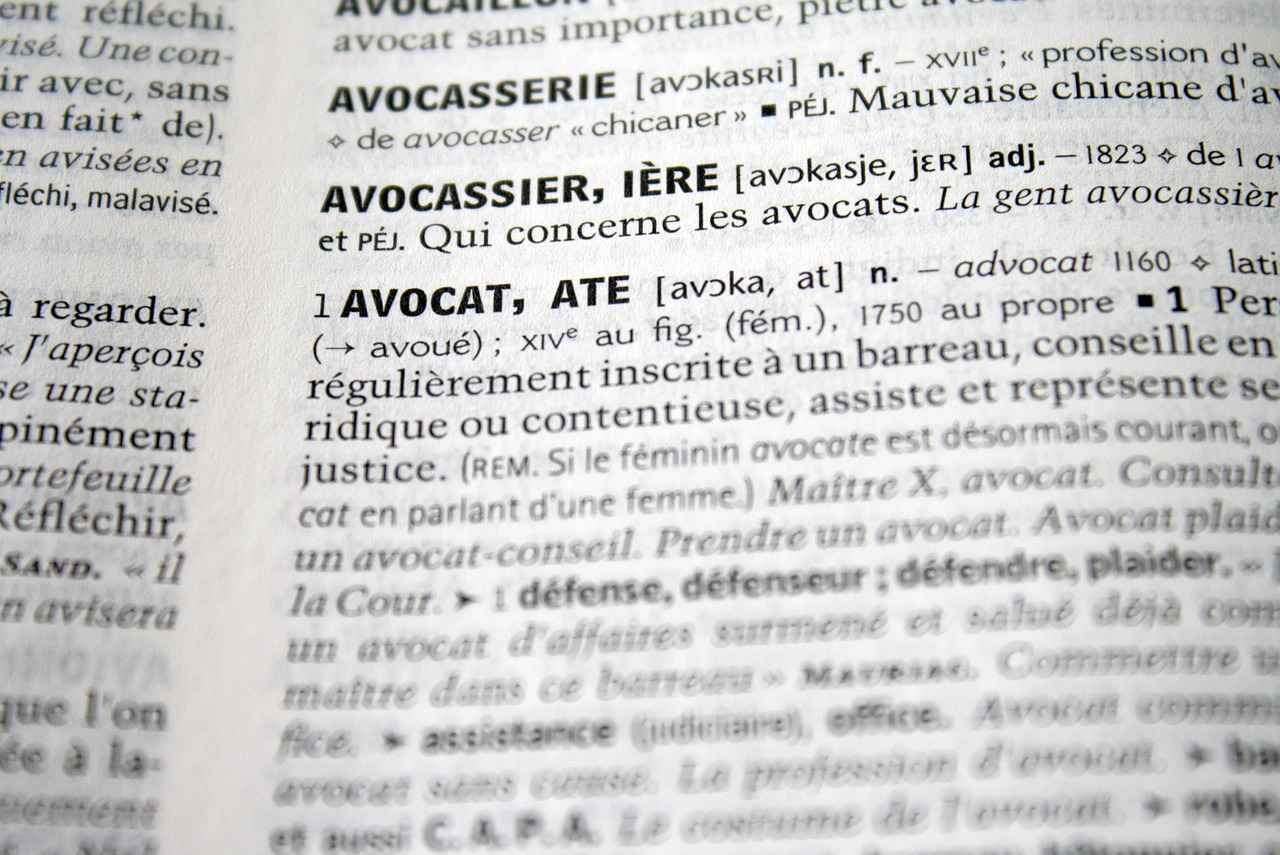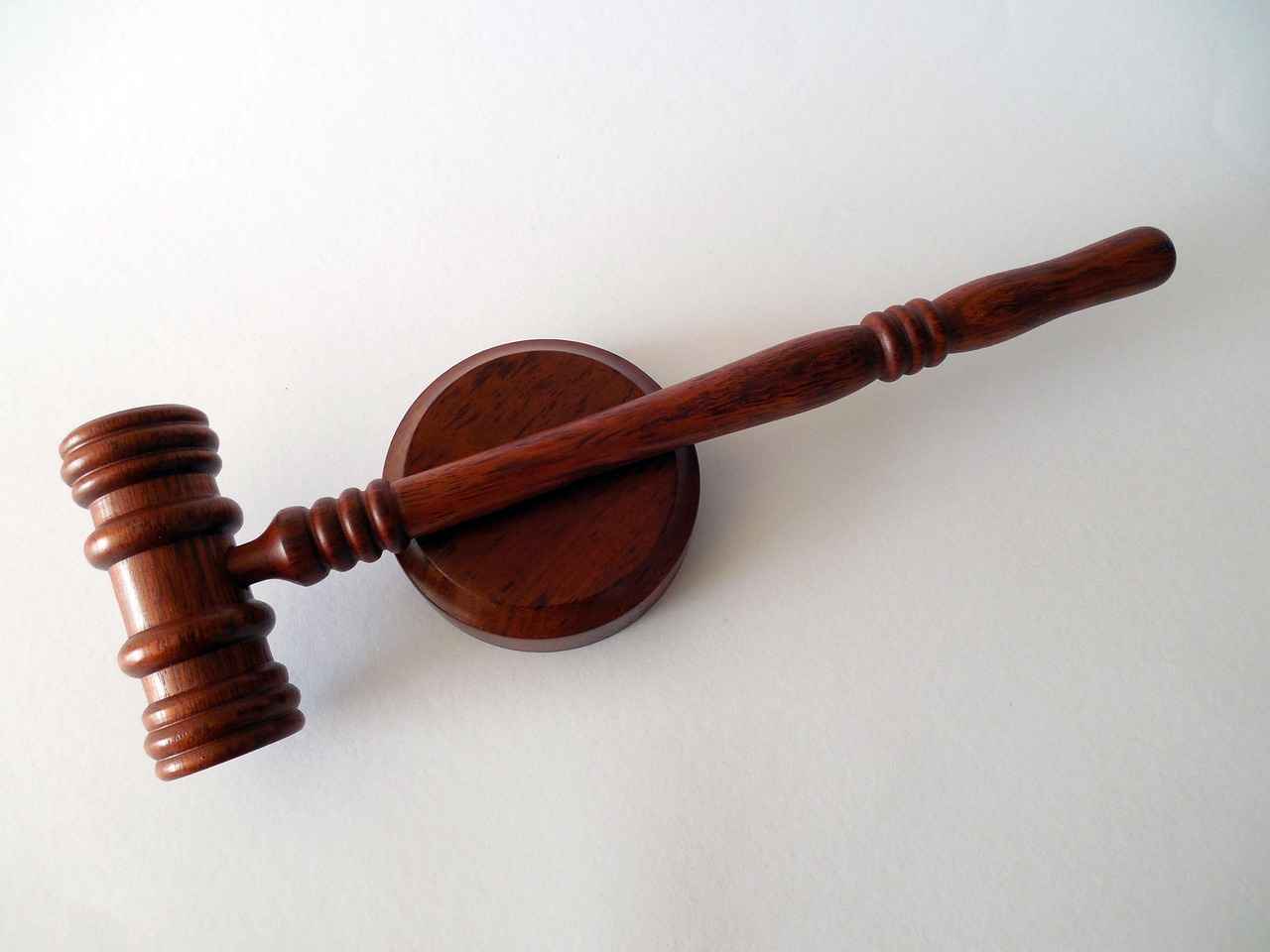This article provides a comprehensive guide to navigating the legal landscape in Arlington, Texas, focusing on how to find the most qualified and trustworthy lawyers for various legal cases.
In the vibrant city of Arlington, Texas, residents encounter a myriad of legal challenges that require expert assistance. From personal injury claims to complex family law matters, understanding the legal landscape is crucial for effective representation. In this guide, we will explore various types of legal cases and provide practical advice on finding the right attorney for your needs.
Arlington residents often face a range of legal issues, including:
- Personal Injury
- Medical Malpractice
- Breach of Contract
- Property Disputes
- Landlord-Tenant Disputes
- Defamation
- Employment Disputes
- Product Liability
Recognizing these cases is the first step in seeking appropriate legal representation.
Personal injury cases often arise from accidents or negligence. Understanding the nuances of these cases can help you find a lawyer who specializes in this area.
Common personal injury cases include:
- Car accidents
- Slip and falls
- Workplace injuries
Each type requires a lawyer with specific expertise to ensure proper representation.
Look for attorneys with a strong track record in personal injury cases. Check their success rates, client testimonials, and whether they work on a contingency fee basis.
Medical malpractice cases involve negligence by healthcare professionals. These cases can be complex, requiring specialized legal knowledge to navigate effectively.
Understanding what constitutes medical malpractice is crucial. This includes misdiagnosis, surgical errors, and failure to treat.
Seek attorneys with experience in medical malpractice, as they will be familiar with the medical standards and legal intricacies involved.
Breach of contract cases can arise in various contexts, including business agreements and personal contracts. Knowing how to approach these cases is vital.
These can include non-payment, failure to deliver goods or services, and violation of terms. Each scenario requires a tailored legal approach.
Look for attorneys specializing in contract law, focusing on their experience with similar cases and their negotiation skills.
Property disputes can involve various issues, such as boundaries or ownership rights. Understanding the nuances can help you find the right legal assistance.
Common disputes include boundary disputes, easements, and landlord-tenant issues. Each type necessitates a specific legal strategy.
Seek lawyers with experience in real estate law and property disputes. Check their track record and client reviews to gauge effectiveness.
Landlord-tenant disputes are common and can involve issues like eviction, security deposits, and lease agreements. Knowing your rights is essential.
These include failure to maintain property, eviction processes, and lease violations. Each issue requires specific legal expertise.
Look for attorneys specializing in real estate or tenant rights. They should be familiar with local housing laws and tenant protections.
Defamation cases, involving libel and slander, can significantly impact personal and professional lives. Understanding the legal framework is crucial for effective representation.
Defamation involves false statements that harm a person’s reputation. Knowing the elements of defamation is key to building a strong case.
Seek attorneys with experience in defamation cases, focusing on their understanding of media law and reputation management.
Employment disputes can arise from wrongful termination, discrimination, and harassment. Understanding your rights is essential in these situations.
These include wage disputes, wrongful termination, and workplace harassment. Each issue requires a knowledgeable legal approach.
Look for lawyers specializing in employment law, focusing on their experience with similar cases and their understanding of workplace regulations.
Product liability cases involve injuries caused by defective products. Understanding the legal standards can help you find the right representation.
These can include design defects, manufacturing defects, and failure to provide adequate warnings. Each type requires specific legal expertise.
Seek attorneys with a strong background in product liability law, focusing on their success rates and client testimonials.
Class action lawsuits allow groups of people to sue for collective harm. Understanding the process is vital for potential plaintiffs.
Class action lawsuits involve a group of individuals with similar claims against a defendant. Knowing the requirements is key to participating.
Look for lawyers with experience in class action suits, focusing on their track record and ability to manage large-scale litigation.
Criminal cases can range from theft to serious felonies. Knowing your rights and the legal process is essential for anyone facing criminal charges.
These can include theft, assault, drug offenses, and more. Each offense requires a tailored legal defense strategy.
Seek attorneys with experience in criminal law, focusing on their success rates and familiarity with local courts.
Family law encompasses divorce, child custody, and adoption. Understanding the complexities of these cases is essential for effective legal representation.
These can include divorce proceedings, child custody arrangements, and spousal support. Each issue requires a nuanced legal approach.
Look for attorneys specializing in family law, focusing on their experience with similar cases and their approach to mediation and negotiation.

Understanding Common Legal Cases in Arlington
Residents of Arlington, Texas, face a myriad of legal challenges that can significantly impact their lives. From personal injury claims to complex family law matters, recognizing the nature of these cases is crucial for seeking the right legal representation. Understanding the most common types of legal issues can empower individuals to make informed decisions when choosing an attorney.
Among the prevalent legal issues, personal injury cases are often at the forefront. These cases typically arise from incidents involving negligence, such as car accidents, slip and falls, or workplace injuries. Victims may seek compensation for medical expenses, lost wages, and emotional distress. To navigate these cases effectively, it is essential to find a lawyer who specializes in personal injury law and has a proven track record of success.
Another common area of concern is family law, which encompasses divorce, child custody, and adoption. Family law cases can be emotionally charged and require attorneys who not only understand the law but also possess strong negotiation skills. When searching for a family law attorney, consider their experience with similar cases and their approach to mediation, as this can greatly influence the outcome.
Medical malpractice cases also feature prominently in Arlington’s legal landscape. These cases arise when healthcare professionals fail to provide the standard of care expected, leading to patient harm. Identifying a qualified attorney with expertise in medical malpractice is crucial, as these cases often involve complex medical and legal issues. Look for lawyers who have successfully handled similar cases and have a deep understanding of medical regulations.
In addition to these, property disputes are common, often involving issues like boundary disputes or landlord-tenant disagreements. Each type of property dispute necessitates a tailored legal approach. Seek attorneys with experience in real estate law to ensure your rights are protected.
Defamation cases, which involve false statements harming an individual’s reputation, are also significant. Understanding the elements of defamation is key to building a strong case. Attorneys specializing in this area should have a solid grasp of media law and experience in handling such sensitive matters.
Furthermore, employment disputes can arise from wrongful termination, discrimination, or workplace harassment. Individuals facing these issues should seek lawyers who specialize in employment law and are familiar with local regulations. Their expertise can help navigate the complexities of employment rights and protections.
Other prevalent legal issues include product liability, where consumers seek compensation for injuries caused by defective products, and class action lawsuits, which allow groups of individuals to seek justice collectively. Each case type requires specific legal knowledge and experience to ensure effective representation.
As you consider legal representation in Arlington, it is essential to recognize the importance of finding a qualified attorney who can address your unique legal needs. Take the time to research potential lawyers, focusing on their experience, client reviews, and areas of expertise. By doing so, you can increase your chances of achieving a favorable outcome in your legal matters.

Personal Injury Cases: What You Need to Know
When it comes to legal matters, personal injury cases are among the most prevalent in the United States. These cases emerge primarily from accidents or negligence, where an individual suffers harm due to another party’s actions or inactions. Understanding the intricacies of personal injury law is crucial for anyone seeking justice and compensation for their injuries.
Personal injury cases can encompass a wide range of incidents, including car accidents, slip and falls, workplace injuries, and medical malpractice. Each category requires specific legal expertise to navigate effectively. For instance, a lawyer specializing in automobile accidents will have different skills compared to one focused on medical malpractice. Hence, identifying the right lawyer is essential for a successful outcome.
When searching for a personal injury lawyer, consider the following strategies:
- Research Credentials: Look for attorneys with a proven track record in personal injury cases. Check their education, years of experience, and specializations.
- Review Success Rates: A lawyer’s success rate in similar cases can provide insight into their capabilities. Look for testimonials or case studies that highlight their achievements.
- Contingency Fee Basis: Many personal injury lawyers work on a contingency fee basis, meaning they only get paid if you win your case. This arrangement aligns their interests with yours, as they are motivated to secure the best outcome.
- Consult Multiple Lawyers: Don’t settle for the first lawyer you meet. Consult with several to gauge their approach and compatibility with your case.
- Check for Red Flags: Be wary of lawyers who make unrealistic promises or pressure you into signing agreements. A reputable attorney will provide a clear and honest assessment of your case.
In metropolitan areas like New York City, Los Angeles, or Chicago, the competition among lawyers can be intense. Utilize online platforms such as Avvo, FindLaw, or Lawyers.com to read reviews and compare attorneys in your area. Additionally, local bar associations often have referral services that can connect you with qualified lawyers.
Remember, personal injury law is a complex field, and having the right attorney by your side can significantly influence the outcome of your case. Take the time to do your research, ask the right questions, and choose a lawyer who not only has the right credentials but also makes you feel comfortable and confident in their abilities.
Types of Personal Injury Cases
Personal injury law encompasses a wide range of cases where individuals suffer harm due to the negligence or wrongful actions of others. Understanding the different types of personal injury cases is crucial for anyone seeking legal representation. Here are some of the most common types:
- Car Accidents: One of the most prevalent forms of personal injury cases, car accidents often result from distracted driving, speeding, or driving under the influence. Victims may suffer from physical injuries, emotional distress, and financial losses, making it essential to have an attorney who specializes in automobile accident claims.
- Slip and Falls: These cases occur when an individual slips, trips, or falls on someone else’s property due to unsafe conditions. Property owners have a duty to maintain safe environments, and failure to do so can result in significant liability. Legal representation is vital to navigate premises liability laws.
- Workplace Injuries: Injuries that occur in the workplace can range from minor accidents to severe incidents leading to long-term disability. Workers’ compensation laws govern these cases, and having a lawyer experienced in workplace injury claims can help ensure that victims receive the benefits they deserve.
- Medical Malpractice: When healthcare professionals fail to provide the standard of care expected, patients can suffer serious consequences. Cases may involve misdiagnosis, surgical errors, or improper treatment. Legal expertise is crucial for navigating the complexities of medical malpractice claims.
- Product Liability: If a defective product causes injury, manufacturers, distributors, or retailers may be held liable. These cases can involve design defects, manufacturing flaws, or failure to warn consumers about potential risks. A lawyer with experience in product liability can help victims pursue compensation.
- Dog Bites: Dog owners can be held liable for injuries caused by their pets, depending on local laws. Victims of dog bites may require medical treatment and may be entitled to compensation for their injuries, making legal guidance essential.
- Wrongful Death: When a person’s death is caused by someone else’s negligence, surviving family members may file a wrongful death claim. These cases can be emotionally challenging and require a sensitive yet assertive legal approach.
Each type of personal injury case requires a lawyer with specific expertise to ensure proper representation. When seeking legal assistance, individuals should consider the attorney’s track record in handling similar cases, their understanding of relevant laws, and their ability to negotiate effectively with insurance companies.
Additionally, potential clients should look for the following when choosing a personal injury lawyer:
- Experience: Ensure the attorney has a solid background in personal injury law and a proven track record of successful outcomes.
- Client Testimonials: Reviews and testimonials from former clients can provide insight into the attorney’s skills and client service.
- Contingency Fee Basis: Many personal injury lawyers work on a contingency fee basis, meaning they only get paid if you win your case. This arrangement can alleviate financial stress for clients.
- Initial Consultation: Take advantage of free consultations to discuss your case and assess whether the attorney is a good fit for your needs.
In conclusion, understanding the various types of personal injury cases can help individuals seek the appropriate legal representation. By evaluating potential attorneys based on their experience, client feedback, and fee structures, victims can find qualified professionals to advocate for their rights.
Finding a Personal Injury Lawyer
When you find yourself in need of a personal injury lawyer, it’s essential to conduct thorough research to ensure you choose the right professional for your case. Personal injury law encompasses a wide range of incidents, including car accidents, slip and falls, and workplace injuries. To secure the best representation, you should focus on a few key criteria.
Evaluate Track Record and Success Rates
Start by looking for attorneys who have a strong track record in personal injury cases. This can be assessed by examining their success rates, which reflect how often they win cases for their clients. A lawyer with a high success rate is likely to have the experience and skills necessary to effectively advocate for your rights. You can often find this information on their official websites or through legal directories.
Read Client Testimonials and Reviews
Client testimonials can provide insight into an attorney’s ability to communicate, negotiate, and achieve favorable outcomes. Look for reviews on platforms such as Avvo, Yelp, and Google Maps. Pay attention to both positive and negative feedback to get a balanced view of the attorney’s performance. A lawyer with consistently positive reviews is generally a good sign of their reliability and effectiveness.
Contingency Fee Basis
Many personal injury lawyers work on a contingency fee basis, meaning they only get paid if you win your case. This arrangement can be beneficial for clients, as it reduces the financial risk associated with hiring a lawyer. Make sure to discuss the fee structure upfront, including any additional costs that may arise during the legal process. A transparent discussion about fees will help you avoid surprises later on.
Assess Communication Skills
Effective communication is crucial in a lawyer-client relationship. During your initial consultation, pay attention to how the attorney communicates with you. Are they attentive to your concerns? Do they explain legal concepts in a way that you can understand? A lawyer who is approachable and willing to answer your questions is likely to provide a better experience throughout your case.
Check Credentials and Experience
It’s essential to verify the attorney’s credentials, including their education, licenses, and any special certifications in personal injury law. Additionally, consider their years of experience in handling cases similar to yours. An attorney with extensive experience is more likely to navigate the complexities of personal injury law effectively.
Look for Specialization
Personal injury law is a broad field, so it’s beneficial to find an attorney who specializes in the specific type of injury you are dealing with. For example, if your case involves a car accident, look for a lawyer who has a proven track record in automobile accident cases. Specialized knowledge can make a significant difference in the outcome of your case.
Utilize Legal Referral Services
Many state and local bar associations offer legal referral services that can connect you with qualified attorneys in your area. These services often pre-screen lawyers to ensure they meet specific criteria, providing an added layer of assurance. Utilizing these resources can save you time and help you find a reputable lawyer more efficiently.
Be Wary of Red Flags
While searching for a personal injury lawyer, be cautious of red flags that may indicate a less-than-reputable attorney. These can include lawyers who make unrealistic promises about the outcome of your case, those who pressure you into signing contracts quickly, or those who have numerous complaints filed against them. Trust your instincts; if something feels off, it’s worth exploring other options.
In summary, finding the right personal injury lawyer involves careful research and consideration. By evaluating their track record, reading client testimonials, understanding their fee structure, and assessing their communication skills, you can make an informed decision. Remember to utilize legal referral services and be vigilant for any red flags during your search.

Medical Malpractice: Seeking Justice
Medical malpractice is a serious concern that affects countless individuals across the United States. It occurs when healthcare professionals fail to provide the standard of care expected in their field, leading to harm or injury to a patient. This can encompass a variety of negligent actions, including misdiagnosis, surgical errors, medication mistakes, and failure to treat a condition appropriately. Understanding the complexities of medical malpractice cases is crucial for those seeking justice and compensation for their suffering.
Identifying medical malpractice can be challenging, as it requires a clear understanding of both medical practices and legal standards. Key indicators of malpractice include:
- Misdiagnosis: When a healthcare provider fails to diagnose a condition that a competent provider would have identified.
- Surgical Errors: Mistakes made during surgery, such as operating on the wrong site or leaving instruments inside the patient.
- Medication Errors: Prescribing the wrong medication or dosage, or failing to consider a patient’s allergies and medical history.
- Failure to Treat: Not providing necessary treatment for a diagnosed condition, leading to worsening health.
Recognizing these signs is the first step in determining whether you have a viable medical malpractice claim.
When seeking a medical malpractice attorney, it is vital to choose someone with the right expertise and experience. Here are some practical tips to guide your selection:
- Specialization: Look for attorneys who specialize in medical malpractice law. They should have a deep understanding of both the medical and legal aspects involved.
- Experience: Consider the attorney’s track record with similar cases. Ask about their success rates and whether they have handled cases similar to yours.
- Client Testimonials: Read reviews and testimonials from previous clients. This can provide insight into the attorney’s effectiveness and client satisfaction.
- Contingency Fee Basis: Many medical malpractice attorneys work on a contingency fee basis, meaning they only get paid if you win your case. This arrangement can reduce the financial burden on you upfront.
Additionally, ensure that the attorney is licensed to practice in your state and has a good standing with the state bar association.
Expert witnesses play a crucial role in medical malpractice cases. They provide testimony regarding the standard of care and whether it was breached. Here’s how they contribute:
- Establishing Standard of Care: Expert witnesses help determine what a competent medical professional would have done in similar circumstances.
- Clarifying Medical Concepts: They explain complex medical issues to the court, making it easier for jurors to understand the case.
- Supporting Evidence: Their testimony can bolster your claim, making it more likely to succeed in court.
Choosing an attorney who has established relationships with reputable medical experts can be beneficial for your case.
The legal process for medical malpractice cases can be lengthy and complicated. It typically involves several steps:
1. Consultation: Discuss your case with a qualified attorney.2. Investigation: The attorney will gather evidence, including medical records and expert opinions.3. Filing a Claim: If there is sufficient evidence, a formal complaint will be filed against the healthcare provider.4. Discovery: Both parties exchange information and evidence.5. Negotiation: Many cases are settled out of court through negotiations.6. Trial: If a settlement cannot be reached, the case will proceed to trial.
Understanding these steps can help you prepare for the journey ahead and manage your expectations throughout the process.
Many individuals hold misconceptions about medical malpractice that can hinder their pursuit of justice. Some common myths include:
- All Bad Outcomes Are Malpractice: Not every negative outcome qualifies as malpractice. There must be evidence of negligence.
- It’s Easy to Win a Case: Medical malpractice cases can be complex and challenging to prove, often requiring extensive evidence and expert testimony.
- Only Doctors Can Be Sued: Other healthcare professionals, including nurses and pharmacists, can also be held liable for malpractice.
Dispelling these myths is essential for individuals considering legal action.
There are various resources available for individuals pursuing medical malpractice claims. Here are some valuable options:
- State Bar Associations: They can provide referrals to qualified attorneys in your area.
- Legal Aid Organizations: These organizations may offer assistance for those who cannot afford legal representation.
- Online Legal Platforms: Websites like Avvo and FindLaw can help you find attorneys with specific expertise in medical malpractice.
Utilizing these resources can enhance your chances of finding a competent attorney who can effectively represent your interests.
Identifying Medical Malpractice
is a critical aspect of ensuring patient safety and accountability within the healthcare system. Medical malpractice occurs when a healthcare professional fails to provide the standard of care that a reasonably competent professional would provide under similar circumstances. This failure can lead to significant harm to the patient, resulting in legal consequences for the practitioner.
Understanding the various forms of medical malpractice is essential for patients who may have suffered due to negligent care. The most common types of medical malpractice include:
- Misdiagnosis or Delayed Diagnosis: This occurs when a healthcare provider fails to diagnose a condition correctly or takes too long to reach a diagnosis. For example, a missed diagnosis of cancer can delay treatment and worsen the patient’s prognosis.
- Surgical Errors: These can range from performing the wrong procedure to leaving surgical instruments inside the patient’s body. Such mistakes can lead to severe complications and require additional surgeries.
- Medication Errors: This includes prescribing the wrong medication, incorrect dosages, or failing to account for drug interactions. These errors can have serious, sometimes fatal, consequences for patients.
- Failure to Treat: When a healthcare provider does not provide necessary treatment or follow-up care, it can lead to deterioration of the patient’s condition. For instance, if a doctor fails to treat an infection promptly, it can escalate into a life-threatening situation.
- Birth Injuries: These injuries can occur due to negligence during labor and delivery, resulting in long-term disabilities for the child. Examples include cerebral palsy and Erb’s palsy.
Recognizing the signs of medical malpractice is vital for patients who suspect they have been victims of negligence. Here are some practical steps to take:
- Document Everything: Keep detailed records of your medical history, treatments, and any interactions with healthcare providers. This documentation can be crucial in establishing a case.
- Seek a Second Opinion: If you believe you received substandard care, consult another medical professional to evaluate your situation. Their insights can help confirm or refute your concerns.
- Consult with a Medical Malpractice Attorney: An experienced attorney can provide guidance on the viability of your case and help you understand your rights. Look for attorneys who specialize in medical malpractice and have a successful track record.
When searching for a medical malpractice attorney, consider the following:
- Experience: Look for lawyers who have handled cases similar to yours and have a deep understanding of medical standards and legal intricacies.
- Reputation: Research potential attorneys through online reviews, testimonials, and professional ratings. A strong reputation in the legal community often indicates reliability and expertise.
- Contingency Fees: Many medical malpractice attorneys work on a contingency fee basis, meaning they only get paid if you win your case. This arrangement can alleviate financial stress while pursuing justice.
It’s important to be aware of red flags when hiring a medical malpractice attorney. Avoid lawyers who:
- Promise Guaranteed Outcomes: No attorney can guarantee the success of a case, as outcomes depend on various factors.
- Pressure You to Sign Quickly: Take your time to evaluate your options and ensure you feel comfortable with your choice.
- Lack Transparency: Ensure the attorney is clear about their fees, processes, and what to expect during your case.
In summary, identifying medical malpractice requires a thorough understanding of the various forms it can take and the steps to take if you suspect negligence. By documenting your experiences, seeking a second opinion, and consulting with a qualified attorney, you can navigate the complexities of medical malpractice cases effectively. Remember that the right legal representation is crucial in holding negligent healthcare providers accountable and seeking the compensation you deserve.
Choosing a Medical Malpractice Attorney
When faced with a medical malpractice situation, it is crucial to find the right attorney who can effectively represent your interests. Medical malpractice cases can be particularly complex, involving intricate medical standards and legal nuances. Therefore, it is essential to seek out attorneys who not only have experience in medical malpractice but also possess a deep understanding of the medical field.
Why Experience Matters
Attorneys specializing in medical malpractice typically have a solid background in both law and medicine. This dual expertise allows them to navigate the complexities of medical records, treatment protocols, and the standards of care required of healthcare professionals. When searching for a medical malpractice attorney, prioritize those with a proven track record in handling similar cases. Look for lawyers who have successfully represented clients in cases involving misdiagnosis, surgical errors, birth injuries, and other forms of negligence.
Researching Potential Attorneys
- Online Reviews: Websites like Avvo and Martindale-Hubbell provide ratings and reviews of attorneys. Pay attention to feedback specifically related to medical malpractice cases.
- Professional Associations: Check if the attorney is a member of organizations such as the American Association for Justice or the local bar association. Membership in these groups often indicates a commitment to staying updated on legal standards and practices.
- Consultation Meetings: Schedule initial consultations with potential attorneys. This meeting is an opportunity to gauge their understanding of your case and their approach to medical malpractice issues.
Evaluating Credentials
When considering an attorney, examine their credentials closely. Look for lawyers with a history of handling cases similar to yours, and inquire about their success rates. It’s also beneficial to ask about their educational background, legal training, and any specialized certifications they may hold in medical malpractice or personal injury law.
Red Flags to Avoid
- High Pressure Tactics: Be wary of attorneys who pressure you into signing contracts or making quick decisions. A reputable attorney will encourage you to take your time to consider your options.
- Lack of Transparency: If an attorney is not forthcoming about their fees, past case outcomes, or their strategy for your case, consider it a red flag.
- Limited Communication: Choose an attorney who is responsive and communicates clearly. You should feel comfortable discussing your concerns and asking questions throughout the legal process.
Understanding Legal Fees
Most medical malpractice attorneys work on a contingency fee basis, meaning they only get paid if you win your case. This arrangement can alleviate the financial burden of hiring a lawyer upfront. However, it’s important to clarify the percentage they will take from the settlement and any additional costs you may incur during the process.
Building a Strong Case
Once you have selected an attorney, work closely with them to build a strong case. Provide all necessary documentation, including medical records, bills, and any correspondence related to your treatment. Your attorney will use this information to establish the standard of care expected in your situation and demonstrate how it was breached.
Conclusion
Choosing the right medical malpractice attorney can significantly impact the outcome of your case. By focusing on experience, conducting thorough research, evaluating credentials, and being aware of red flags, you can find a qualified legal professional who will advocate for your rights and help you seek the justice you deserve.

Breach of Contract: Protecting Your Interests
Breach of contract cases are prevalent in both personal and business contexts. They occur when one party fails to fulfill their obligations under a legally binding agreement. Understanding how to navigate these cases is crucial for protecting your interests and ensuring that you receive the compensation or performance you are entitled to. This article will delve into common scenarios of breach of contract, how to find the right legal representation, and what to look for in a contract lawyer.
Common Breach of Contract Scenarios
- Non-Payment: This occurs when one party fails to pay for goods or services rendered. It is one of the most frequent causes of contract disputes.
- Failure to Deliver Goods or Services: When a party does not provide the agreed-upon goods or services, it constitutes a breach.
- Violation of Terms: This includes not adhering to the specific conditions outlined in a contract, such as deadlines or quality standards.
Each of these scenarios requires a tailored legal approach, as the remedies and strategies can vary significantly. For instance, non-payment might lead to a demand for payment or a lawsuit, while a failure to deliver could involve specific performance claims.
Finding a Contract Lawyer
When searching for a lawyer specializing in contract law, consider the following proven methods:
- Referrals: Ask friends, family, or business associates for recommendations. A personal referral can often lead to finding a trustworthy attorney.
- Online Legal Platforms: Websites like Avvo or FindLaw allow you to search for attorneys by practice area and location. They often include reviews and ratings from previous clients.
- Bar Association Listings: Check your state or local bar association for a list of qualified attorneys. Many bar associations provide referral services to help you find a lawyer suited to your needs.
Credentials to Look For
When evaluating potential lawyers, pay attention to their credentials:
- Experience: Look for attorneys with a proven track record in handling breach of contract cases. Their experience will be invaluable in navigating your specific situation.
- Specialization: Ensure that the lawyer specializes in contract law. Some attorneys may have a general practice but lack the depth of knowledge required for complex contract disputes.
- Success Rate: Inquire about their success rate in similar cases. A high success rate can indicate their effectiveness in achieving favorable outcomes for their clients.
Red Flags to Avoid
While searching for a lawyer, be cautious of certain red flags:
- Vague Promises: Be wary of attorneys who make unrealistic promises about the outcome of your case. Legal matters can be unpredictable, and no lawyer can guarantee results.
- Lack of Communication: If a lawyer is difficult to reach or does not respond promptly to inquiries, it may indicate a lack of commitment to your case.
- High Pressure Tactics: Avoid lawyers who pressure you into making quick decisions or signing contracts without fully understanding the implications.
By understanding the common scenarios of breach of contract, knowing how to find the right legal representation, and being aware of what to look for and what to avoid, you can protect your interests effectively. Whether you are dealing with a personal contract or a business agreement, having a qualified attorney by your side can make all the difference in achieving a favorable resolution.
Common Breach of Contract Scenarios
In the realm of legal disputes, breach of contract scenarios are prevalent and can manifest in various forms. A breach occurs when one party fails to fulfill their contractual obligations, leading to potential legal action. Understanding the common scenarios can help individuals and businesses navigate these disputes effectively.
Breach of contract cases can arise in numerous contexts, each necessitating a unique legal strategy. Here are some of the most frequent scenarios:
- Non-Payment: This is one of the most common breaches, where a party fails to make payments as stipulated in the contract. Whether it’s a service provider not receiving payment for completed work or a tenant failing to pay rent, non-payment can lead to significant financial repercussions.
- Failure to Deliver Goods or Services: Contracts often involve the exchange of goods or services. When one party fails to deliver what was promised, it can lead to disputes. For example, a supplier not delivering products on time can disrupt a business’s operations and lead to loss of revenue.
- Violation of Terms: Contracts come with specific terms and conditions that must be adhered to. If one party fails to comply with these terms—such as a contractor not following building codes or a client not providing necessary information—it can constitute a breach.
- Impossibility of Performance: Sometimes, unforeseen circumstances make it impossible for one party to fulfill their contractual obligations. This could include natural disasters, legal changes, or other events that prevent performance.
- Anticipatory Breach: This occurs when one party indicates, either through actions or statements, that they will not fulfill their contractual obligations before the due date. This gives the other party the right to take legal action even before the breach occurs.
- Mutual Mistake: If both parties are mistaken about a fundamental aspect of the contract, it may lead to a breach. For instance, if both parties believed a property was free of liens, but it is later discovered that it isn’t, this could invalidate the contract.
Each of these scenarios requires a tailored legal approach. It is essential to consult a qualified attorney who specializes in contract law to assess the situation and provide guidance on the best course of action. When searching for a lawyer, consider the following:
- Experience: Look for attorneys who have a proven track record in handling breach of contract cases similar to yours. Their experience can significantly impact the outcome of your case.
- Client Reviews: Check online reviews and testimonials from previous clients. This can provide insight into the attorney’s effectiveness and client service.
- Fee Structure: Understand the attorney’s fee structure. Some may work on a contingency basis, while others charge hourly rates or flat fees. Ensure that you are comfortable with the financial arrangement.
- Communication Skills: An effective attorney should communicate clearly and keep you informed about your case’s progress. Pay attention to how they respond to your inquiries during the initial consultation.
- Red Flags: Be wary of attorneys who make unrealistic promises or guarantees about the outcome of your case. Legal matters are often unpredictable, and no attorney can guarantee a specific result.
In conclusion, understanding the common breach of contract scenarios can empower individuals and businesses to take appropriate action when faced with a legal dispute. By seeking the right legal representation, you can protect your interests and navigate the complexities of contract law effectively.
Finding a Contract Lawyer
When you find yourself in need of legal assistance related to contracts, it is crucial to find an attorney who specializes in contract law. Contract law encompasses a wide range of issues, including the creation, interpretation, and enforcement of agreements. A qualified lawyer can help you navigate the complexities of these legal matters, whether you are dealing with a breach of contract, drafting a new agreement, or negotiating terms.
To effectively find a contract lawyer, consider the following steps:
- Research Specialization: Look for attorneys whose primary focus is on contract law. This specialization ensures that they have the necessary knowledge and experience to handle your case effectively.
- Evaluate Experience: Inquire about the lawyer’s experience with similar cases. For instance, if your issue involves commercial contracts, seek out an attorney who has successfully represented clients in that particular area.
- Assess Negotiation Skills: Strong negotiation skills are vital in contract law. A good attorney should be able to advocate for your interests while maintaining a professional relationship with the other party. Ask about their approach to negotiation and past successes.
- Check Credentials: Look for attorneys who are members of reputable legal organizations, such as the American Bar Association or state bar associations. This affiliation can indicate a commitment to ongoing education and adherence to ethical standards.
- Read Reviews and Testimonials: Client feedback can provide valuable insights into an attorney’s effectiveness and professionalism. Look for reviews on legal websites or ask for references from past clients.
- Schedule Consultations: Many attorneys offer free initial consultations. Use this opportunity to discuss your case and gauge the lawyer’s understanding, communication style, and willingness to address your concerns.
- Understand Fee Structures: Be clear about the attorney’s fee structure. Some lawyers charge hourly rates, while others may work on a contingency basis. Ensure that you fully understand the financial implications before proceeding.
In major metropolitan areas like New York City, Los Angeles, and Chicago, the competition among attorneys can be fierce. Therefore, leveraging online platforms such as Avvo or FindLaw can help you compare lawyers, read reviews, and find someone who fits your needs. Additionally, local bar associations often have referral services that can connect you with qualified attorneys.
When hiring a contract lawyer, be cautious of red flags such as:
- Lack of Transparency: If a lawyer is unwilling to provide clear information about their experience, fees, or approach, consider it a warning sign.
- High Pressure Tactics: Avoid attorneys who pressure you into signing contracts or making decisions quickly. A good lawyer should give you the time you need to make informed choices.
- Poor Communication: Effective communication is essential in any legal matter. If a lawyer is hard to reach or does not respond promptly to your inquiries, it may indicate future challenges.
In summary, finding the right contract lawyer involves careful research, evaluation of experience and negotiation skills, and attention to detail. By following these guidelines, you can ensure that you have a qualified advocate by your side to protect your interests and navigate the complexities of contract law.

Property Disputes: Navigating Legal Complexities
Property disputes can arise from a variety of issues, including boundary lines, ownership rights, and easements. These disputes are often complex and can escalate quickly if not addressed properly. Understanding the underlying issues and knowing how to navigate the legal landscape is essential for anyone facing such challenges.
One common type of property dispute involves boundary disputes. This occurs when two property owners disagree on the exact location of their property lines. These disputes can arise from unclear property descriptions, natural changes in the landscape, or even historical inaccuracies in property deeds. To resolve boundary disputes, it is crucial to gather all relevant documents, such as surveys and title deeds, and consult with a lawyer who specializes in real estate law.
Another significant area of property disputes is related to easements. An easement allows one party to use a portion of another party’s property for a specific purpose, such as accessing a road or utility lines. Disputes may arise over the scope of the easement, the responsibilities of the parties involved, or the termination of the easement. Legal counsel can help clarify the rights and obligations of each party based on the easement agreement.
Landlord-tenant issues are also prevalent in property disputes. These can range from disagreements over security deposits to violations of lease agreements. Tenants may feel their rights are being violated if landlords fail to maintain safe living conditions or attempt to evict them without proper cause. In such cases, understanding local housing laws and tenant protections is vital. Tenants should seek legal advice to ensure their rights are upheld.
When facing a property dispute, choosing the right lawyer is critical. Here are some steps to consider:
- Specialization: Look for lawyers who specialize in real estate law and have experience with property disputes. Their expertise will be invaluable in navigating the complexities of your case.
- Track Record: Research potential attorneys to find out about their success rates in similar cases. Client testimonials can provide insight into their effectiveness and client satisfaction.
- Consultation: Many attorneys offer free consultations. Use this opportunity to ask about their approach to your specific situation and how they plan to handle your case.
- Fees: Understand the attorney’s fee structure. Some may work on a contingency basis, while others charge hourly rates. Ensure you are comfortable with the financial arrangement before proceeding.
- Red Flags: Be cautious of lawyers who make unrealistic promises or pressure you into signing contracts without fully explaining the terms. A reputable attorney will provide clear and honest guidance.
In summary, property disputes can be intricate and emotionally charged. Whether it’s a boundary disagreement, an easement issue, or a landlord-tenant conflict, understanding the nuances of these cases is crucial. By selecting a qualified attorney with relevant experience, you can navigate these legal complexities effectively and protect your rights in the process.
Types of Property Disputes
Property disputes can arise from various issues that affect ownership rights, usage, and boundaries. Understanding these disputes is essential for anyone involved in real estate transactions or property management. Here, we will explore the most common types of property disputes and provide guidance on how to find qualified legal representation in these matters.
- Boundary Disputes: These occur when two property owners disagree on the exact location of their property lines. Such disputes can escalate quickly, often requiring surveys and legal intervention to resolve. If you find yourself in a boundary dispute, seek a lawyer with experience in real estate law who can help clarify property lines and negotiate with neighboring parties.
- Easements: An easement grants one party the right to use a portion of another party’s property for a specific purpose, such as access to a road or utility lines. Disputes can arise over the scope or existence of an easement. A lawyer specializing in property law can assist in negotiating easement agreements and resolving conflicts.
- Landlord-Tenant Issues: These disputes often involve disagreements over lease agreements, security deposits, maintenance responsibilities, or eviction processes. Understanding tenant rights and landlord obligations is crucial. Legal representation can help both parties navigate these complex relationships effectively.
- Adverse Possession: This legal doctrine allows a person to claim ownership of land under certain conditions, typically after continuous and open use for a specified period. Disputes may arise when the original owner contests the claim. An attorney experienced in property disputes can provide guidance on the intricacies of adverse possession claims.
- Title Disputes: Issues regarding the ownership of a property can lead to title disputes. These can stem from unclear titles, liens, or claims by third parties. A real estate attorney can help resolve title issues by conducting thorough title searches and negotiating settlements.
When seeking a lawyer for property disputes, consider the following:
- Experience: Look for attorneys who specialize in real estate law and have a proven track record in handling property disputes similar to yours.
- Local Knowledge: Choose a lawyer familiar with local laws and regulations, as property laws can vary significantly by state and municipality.
- Client Reviews: Check online reviews and testimonials to gauge the lawyer’s reputation and effectiveness in resolving property disputes.
- Communication Skills: Ensure the attorney communicates clearly and is responsive to your questions and concerns throughout the legal process.
- Fees and Payment Structure: Discuss fees upfront, including whether the lawyer charges hourly rates or works on a contingency basis. Understanding the financial aspect is crucial to avoid surprises later.
In major cities like New York, Los Angeles, and Chicago, numerous resources are available to help you find qualified property dispute lawyers. Platforms like Avvo and FindLaw allow you to search for attorneys by specialty and location. Additionally, local bar associations often provide referral services that can connect you with reputable lawyers in your area.
In conclusion, property disputes can be complex and emotionally charged. Understanding the types of disputes and knowing how to find qualified legal representation is vital to protecting your rights and interests. By following the guidelines outlined above, you can navigate the legal landscape with confidence.
Choosing a Property Dispute Lawyer
When it comes to navigating complex property disputes, the importance of selecting the right legal representation cannot be overstated. Property disputes can arise from various issues, including boundary disagreements, ownership claims, and landlord-tenant conflicts. To ensure that your case is handled effectively, it is essential to seek out a lawyer who specializes in real estate law and has a proven track record in property disputes.
Experience Matters
One of the first factors to consider when choosing a property dispute lawyer is their experience in the field. Look for attorneys who have dedicated their practice to real estate law and have handled cases similar to yours. An experienced lawyer will be familiar with local laws, regulations, and common practices, which can significantly influence the outcome of your case.
Track Record and Client Reviews
Before making a decision, it is crucial to check the attorney’s track record. This includes reviewing their success rates in resolving property disputes and the types of cases they have handled. Client reviews and testimonials can provide valuable insights into the lawyer’s effectiveness, communication style, and overall client satisfaction. Websites like Avvo and Yelp can be excellent resources for finding reviews and ratings of legal professionals.
Initial Consultations
Many lawyers offer free initial consultations, which can be an excellent opportunity for you to assess their suitability for your case. During this meeting, ask specific questions about their experience with property disputes, their approach to handling cases, and their fee structure. Pay attention to how well they listen to your concerns and whether they take the time to explain legal concepts in a way that you can understand.
Specialization in Real Estate Law
Not all lawyers are created equal, and specialization is key when it comes to property disputes. Look for attorneys who focus specifically on real estate law and have a deep understanding of the intricacies involved in property-related issues. This specialization often translates into a more effective legal strategy tailored to your unique situation.
Red Flags to Avoid
- Lack of Communication: If a lawyer is unresponsive or fails to return your calls during the initial consultation, this could be a warning sign of future communication issues.
- Unclear Fee Structure: Be cautious of attorneys who are vague about their fees or pressure you into signing a contract without fully explaining the terms.
- Negative Reviews: While one or two negative reviews may not be a dealbreaker, a pattern of complaints about similar issues should raise concerns.
Networking and Referrals
Another effective way to find a qualified property dispute lawyer is through networking and referrals. Speak to friends, family, or colleagues who have had similar legal issues. Personal recommendations can often lead you to trustworthy attorneys who have a proven track record in handling property disputes.
Online Legal Platforms
In addition to personal referrals, consider using online legal platforms such as FindLaw or Lawyers.com. These platforms allow you to search for attorneys based on their area of expertise, location, and client ratings. You can also find detailed profiles that outline each lawyer’s credentials and experience, making it easier to compare your options.
Conclusion
Choosing the right property dispute lawyer involves careful consideration of their experience, track record, and communication style. By taking the time to research and evaluate potential attorneys, you can find a legal professional who will advocate for your interests and guide you through the complexities of property law. Remember, the right lawyer can make all the difference in achieving a favorable resolution to your property dispute.

Landlord-Tenant Disputes: Know Your Rights
Landlord-tenant disputes are a prevalent issue in the United States, often leading to significant legal battles and emotional stress for both parties involved. These disputes can encompass a variety of issues, including eviction, security deposits, and lease agreements. Understanding your rights as a tenant or landlord is crucial to navigating these complexities effectively.
Landlord-tenant relationships can be fraught with conflict due to misunderstandings or violations of agreements. Some of the most common issues include:
- Failure to Maintain Property: Landlords are legally obligated to keep rental properties in a habitable condition. If repairs are not made, tenants may have grounds for legal action.
- Eviction Processes: Evictions must follow specific legal procedures. Landlords cannot simply remove tenants without due process, and tenants have rights during eviction proceedings.
- Lease Violations: Disputes often arise when either party believes the other has violated the lease terms, such as unauthorized subletting or failure to pay rent.
When facing landlord-tenant disputes, it’s essential to find a qualified attorney who specializes in real estate law. Here are some tips to help you in your search:
- Look for Specialization: Seek attorneys with a focus on landlord-tenant law or real estate disputes. Their expertise will ensure they are familiar with local housing laws and tenant protections.
- Check Credentials: Verify the lawyer’s credentials, including their education, experience, and any relevant certifications. Membership in local or national bar associations can also be a good indicator of professionalism.
- Read Reviews: Online reviews and client testimonials can provide insights into an attorney’s effectiveness and client satisfaction. Look for patterns in feedback to gauge their reliability.
- Initial Consultations: Many lawyers offer free initial consultations. Use this opportunity to discuss your case, assess their communication style, and evaluate whether you feel comfortable working with them.
Each state has its own laws governing landlord-tenant relationships. Familiarizing yourself with these regulations can empower both landlords and tenants. Key areas to focus on include:
- Security Deposit Laws: Many states have specific rules regarding how much a landlord can charge for a security deposit and the timeline for returning it after a tenant moves out.
- Notice Requirements: Understanding the notice requirements for eviction or lease termination is crucial. These regulations can vary significantly from one jurisdiction to another.
- Tenant Rights: Tenants have rights that protect them from unfair eviction, harassment, and unsafe living conditions. Knowing these rights can help tenants advocate for themselves.
Not all landlord-tenant disputes need to escalate to legal action. Here are some proven methods for resolving conflicts:
- Open Communication: Encourage open lines of communication between landlords and tenants. Many disputes can be resolved through honest discussions.
- Mediation: Consider mediation as a way to settle disputes amicably. Mediators can help both parties reach a mutually beneficial agreement without going to court.
- Document Everything: Keep detailed records of all communications, repairs requested, and payments made. This documentation can be invaluable if legal action becomes necessary.
While finding the right attorney is crucial, it’s equally important to be aware of potential red flags. Here are some warning signs to look out for:
- Lack of Experience: Avoid lawyers who lack experience in landlord-tenant disputes or real estate law. An inexperienced attorney may not be able to effectively represent your interests.
- Poor Communication: If an attorney is unresponsive or fails to communicate clearly during initial consultations, this may indicate future issues in your working relationship.
- Unclear Fees: Be cautious of attorneys who are not transparent about their fees. Ensure you understand their billing practices and any potential additional costs.
In conclusion, landlord-tenant disputes can be complex and emotionally charged. However, by understanding your rights and knowing how to find a qualified attorney, you can navigate these challenges more effectively. Whether you are a tenant seeking to protect your rights or a landlord aiming to enforce your agreements, having the right legal support is essential.
Common Issues in Landlord-Tenant Relationships
Landlord-tenant relationships can often become contentious, leading to various legal issues that require careful navigation. Understanding the common issues that arise in these relationships is crucial for both landlords and tenants. Here, we will explore some of the most prevalent problems, including failure to maintain property, eviction processes, and lease violations. Each of these issues demands specific legal expertise to resolve effectively.
One of the most common issues in landlord-tenant relationships is the failure to maintain property. Landlords have a legal obligation to ensure that their rental properties are safe and habitable. This includes addressing necessary repairs such as plumbing issues, heating and cooling systems, and structural integrity. Tenants have the right to request repairs, and if landlords neglect these responsibilities, tenants may have grounds for legal action.
When dealing with maintenance issues, tenants should document all requests for repairs in writing and keep a record of any correspondence with their landlord. If the landlord fails to respond adequately, tenants may consider consulting with a lawyer who specializes in landlord-tenant law to explore their options, which could include withholding rent or filing a complaint with local housing authorities.
The eviction process is another significant area of concern in landlord-tenant relationships. Landlords must follow specific legal procedures to evict a tenant, which typically involves providing proper notice and obtaining a court order. Failure to adhere to these procedures can lead to legal complications and may result in the eviction being deemed unlawful.
Tenants facing eviction should understand their rights and the legal grounds upon which they can challenge an eviction notice. Common defenses might include improper notice or retaliatory eviction. Seeking legal counsel can help tenants navigate the complexities of eviction laws and ensure that their rights are protected throughout the process.
Lease violations can encompass a wide range of issues, from unauthorized pets to excessive noise complaints. Both landlords and tenants must understand the terms of their lease agreements and the potential consequences of violating those terms. Landlords have the right to enforce lease provisions, but they must also follow legal protocols when addressing violations.
Tenants should familiarize themselves with the specific terms of their lease and communicate openly with their landlords about any concerns. If a lease violation notice is issued, tenants may benefit from consulting a lawyer to assess the validity of the claim and to discuss possible resolutions.
When seeking legal representation for landlord-tenant disputes, it is essential to find an attorney who specializes in real estate law and has experience with local housing regulations. Here are several steps to follow:
- Research Local Attorneys: Utilize online legal directories, such as Avvo or FindLaw, to search for lawyers in your area who specialize in landlord-tenant issues.
- Check Credentials: Look for attorneys with relevant experience, positive client reviews, and appropriate licenses to practice in your state.
- Schedule Consultations: Many attorneys offer free initial consultations. Use this opportunity to discuss your case and assess the lawyer’s approach and expertise.
- Avoid Red Flags: Be cautious of lawyers who guarantee outcomes, have poor communication skills, or lack transparency about fees and processes.
By carefully selecting a qualified attorney, individuals can ensure that their landlord-tenant disputes are handled effectively and in accordance with the law.
Finding a Lawyer for Landlord-Tenant Issues
Finding a competent attorney for landlord-tenant issues is crucial for both tenants and landlords in Arlington, Texas. These disputes can often escalate quickly, leading to significant legal consequences if not addressed properly. Here’s a comprehensive guide to help you navigate this process effectively.
Before seeking legal representation, it’s important to understand the basic principles of landlord-tenant law. These laws are designed to protect the rights of both parties involved in a rental agreement. Familiarize yourself with terms such as eviction, security deposits, and lease agreements. This foundational knowledge will empower you to articulate your concerns clearly when speaking with potential attorneys.
When searching for a lawyer specializing in landlord-tenant issues, consider the following methods:
- Referrals: Ask friends, family, or colleagues if they can recommend a qualified attorney.
- Online Directories: Websites like Avvo and FindLaw provide listings of attorneys by specialty and location.
- Local Bar Association: Contact the Arlington Bar Association for a list of attorneys who specialize in real estate and tenant rights.
Once you have a list of potential attorneys, evaluate their credentials to ensure they are well-suited for your case:
- Experience: Look for attorneys with a proven track record in landlord-tenant disputes. Experience in local courts can be a significant advantage.
- Client Reviews: Read testimonials and reviews from previous clients to gauge the attorney’s effectiveness and communication style.
- Professional Affiliations: Membership in organizations such as the American Bar Association or local real estate law sections indicates a commitment to staying updated on legal changes.
Schedule an initial consultation to discuss your case. During this meeting, pay attention to the following:
- Communication Skills: The attorney should be able to explain complex legal concepts in a way that is easy to understand.
- Case Strategy: Inquire about their approach to your specific situation. A good attorney will outline a clear strategy tailored to your needs.
- Fees: Discuss the fee structure upfront. Some attorneys may work on a contingency basis, while others may charge hourly rates or flat fees.
While searching for a lawyer, be wary of the following warning signs:
- Lack of Experience: Avoid attorneys who do not have specific experience in landlord-tenant law.
- Poor Communication: If the attorney is unresponsive during initial communications, this may indicate future issues.
- Unclear Fees: Be cautious of attorneys who are vague about their fee structure or do not provide a written agreement.
Finding the right lawyer for landlord-tenant issues requires careful consideration and research. By understanding the basics of landlord-tenant law, identifying potential attorneys, evaluating their credentials, and being aware of red flags, you can ensure that you secure competent legal representation. This proactive approach will not only help you navigate your current situation but also protect your rights in the future.

Defamation: Protecting Your Reputation
Defamation cases, which encompass both libel (written defamation) and slander (spoken defamation), can have profound effects on both personal and professional lives. In today’s digital age, where information spreads rapidly, understanding the intricacies of defamation law is essential for anyone seeking to protect their reputation.
Defamation occurs when false statements are made about an individual or organization that result in harm to their reputation. These statements must be presented as facts rather than opinions, and the burden of proof typically lies with the plaintiff to demonstrate that the statements were false and damaging. The legal framework surrounding defamation can vary significantly from state to state, making it crucial for individuals to seek legal representation that is well-versed in local laws.
When considering a defamation case, it is important to recognize the elements that constitute defamation:
- False Statement: The statement in question must be false.
- Publication: The statement must be made to a third party.
- Harm: The statement must cause harm to the plaintiff’s reputation.
- Fault: Depending on the plaintiff’s status (public figure vs. private individual), the level of fault can vary.
Finding a qualified defamation attorney is crucial for navigating these complex legal waters. Here are some expert tips for selecting the right legal representation:
- Experience in Defamation Cases: Look for attorneys who specialize in defamation law. Their familiarity with the nuances of libel and slander will be invaluable.
- Track Record: Review their previous cases and success rates. A strong history of winning defamation cases can indicate their competence.
- Understanding of Media Law: Given the rise of social media and online publishing, an attorney with a solid grasp of media law will be better equipped to handle your case.
- Client Reviews: Seek testimonials from previous clients to gauge their satisfaction and the attorney’s ability to communicate effectively.
- Initial Consultation: Many attorneys offer free consultations. Use this opportunity to assess their approach and determine if it aligns with your needs.
In major metropolitan areas such as New York City, Los Angeles, and Chicago, the legal market is competitive, and finding the right attorney can be challenging. Utilize online platforms like Avvo, FindLaw, and Martindale-Hubbell to research potential lawyers. These platforms provide comprehensive profiles, including ratings and areas of expertise, which can help streamline your search.
While searching for a defamation attorney, it is also essential to be aware of potential red flags:
- Lack of Communication: If an attorney is difficult to reach or unresponsive during initial inquiries, this may indicate future communication issues.
- Unclear Fee Structures: Be cautious of lawyers who cannot clearly explain their fee structures. Transparency in billing is crucial.
- Overpromising Results: An attorney who guarantees a specific outcome may not be trustworthy. Legal outcomes can be unpredictable.
In summary, defamation cases require careful consideration and qualified legal representation. By understanding the elements of defamation, utilizing online resources, and being vigilant about red flags, individuals can better protect their reputations and navigate the complexities of defamation law effectively.
What Constitutes Defamation?
Defamation is a serious legal matter that can have profound effects on an individual’s personal and professional life. It involves making false statements about someone that can damage their reputation. Understanding the intricacies of defamation is essential for anyone considering legal action. This section will delve deeper into what constitutes defamation, the types of defamation, and how to build a strong case.
To establish a defamation claim, certain elements must be proven:
- False Statement: The statement must be untrue. Truth is an absolute defense against defamation.
- Publication: The statement must be communicated to a third party. This means it cannot be a private conversation between two individuals.
- Fault: Depending on the plaintiff’s status (public figure or private individual), the level of fault that must be proven varies. Public figures must show actual malice, while private individuals need to demonstrate negligence.
- Damages: The plaintiff must show that the false statement caused harm to their reputation, resulting in damages such as lost income or emotional distress.
Defamation is generally categorized into two types: libel and slander.
- Libel: This refers to defamation that occurs in a permanent form, such as written statements, photographs, or online posts. Because libelous statements can be disseminated widely and persist over time, the potential for harm is often greater.
- Slander: This involves spoken defamatory statements. Since slanderous comments are often transient, proving damages can be more challenging. However, certain types of slander, such as statements about a person’s professional competence, can lead to presumed damages.
If you believe you have been defamed, it’s crucial to take the following steps to strengthen your case:
- Document Everything: Keep records of the defamatory statements, including dates, times, and the context in which they were made. This documentation will be vital for your attorney.
- Gather Evidence: Collect supporting evidence, such as witness statements or any communications that can corroborate your claim.
- Consult a Defamation Attorney: Seek legal representation from an attorney who specializes in defamation cases. They can guide you through the complexities of the law and help you determine the best course of action.
Finding an attorney with the right expertise is crucial for a successful outcome. Here are some tips:
- Experience: Look for attorneys who have a proven track record in handling defamation cases. They should be familiar with the nuances of libel and slander laws.
- Reputation: Research their reputation through online reviews, testimonials, and professional affiliations. A strong reputation can indicate reliability and effectiveness.
- Initial Consultation: Many attorneys offer a free initial consultation. Use this opportunity to discuss your case and gauge their understanding and approach.
While searching for legal representation, be cautious of the following red flags:
- Lack of Specialization: Avoid attorneys who do not specialize in defamation or media law, as they may lack the necessary expertise.
- Unrealistic Promises: Be wary of any attorney who guarantees a specific outcome. Legal cases can be unpredictable, and no one can assure victory.
- Poor Communication: If an attorney is unresponsive or fails to communicate clearly during initial consultations, it may indicate potential issues in their practice.
In conclusion, understanding the elements of defamation, the types of defamation, and how to build a strong case is crucial for anyone facing such a situation. By following the guidelines outlined above, individuals can navigate the complexities of defamation law and seek justice effectively.
Choosing a Defamation Attorney
When it comes to navigating the complex world of defamation law, choosing the right attorney is crucial. Defamation cases, which involve false statements that harm an individual’s reputation, can have significant personal and professional repercussions. Therefore, it’s essential to seek attorneys who possess not only legal expertise but also a deep understanding of media law and reputation management. Here’s a guide to help you find the most qualified defamation attorney.
- Experience in Defamation Cases: Look for attorneys who specialize in defamation law. Their experience should include a proven track record of handling similar cases, whether they involve libel (written statements) or slander (spoken statements). An attorney well-versed in these areas will better understand the nuances of your case.
- Understanding of Media Law: Given the nature of defamation cases, it’s beneficial to select an attorney with a solid grasp of media law. This includes knowledge of how defamation intersects with freedom of speech and the press. An attorney familiar with these legal principles can provide more effective representation.
- Reputation Management Skills: An attorney who understands reputation management can offer invaluable insights into how to protect and restore your reputation. They should be able to guide you on the best strategies to mitigate damage and pursue claims against those who have harmed your reputation.
- Client Testimonials and Reviews: Before making a choice, read client testimonials and reviews. This can provide insight into the attorney’s effectiveness and client satisfaction. Look for feedback specifically related to defamation cases to ensure relevance.
- Consultation Availability: Many attorneys offer initial consultations. Take advantage of this opportunity to discuss your case and evaluate the attorney’s approach. Pay attention to how well they listen and whether they address your concerns comprehensively.
- Fees and Payment Structure: Understand the attorney’s fee structure before hiring. Some may work on a contingency fee basis, meaning they only get paid if you win your case. This can alleviate some financial pressure, especially in potentially costly defamation lawsuits.
In summary, finding the right defamation attorney involves careful consideration of their experience, understanding of media law, and reputation management skills. By taking the time to research and evaluate potential attorneys, you can ensure that you have a knowledgeable advocate on your side, ready to protect your rights and help you navigate the complexities of defamation law.

Employment Disputes: Navigating Workplace Issues
Employment disputes are a common occurrence in today’s workplaces and can stem from various issues such as wrongful termination, discrimination, and harassment. Understanding your rights is essential in these situations, as it empowers you to take appropriate action and seek justice. This article will delve into the complexities of employment disputes and provide guidance on how to find qualified legal representation.
Employment disputes can arise from a multitude of factors. Here are some of the most prevalent issues:
- Wrongful Termination: This occurs when an employee is fired for illegal reasons, such as discrimination or retaliation for whistleblowing.
- Discrimination: Employees may face discrimination based on race, gender, age, disability, or sexual orientation, which can lead to a hostile work environment.
- Harassment: This includes any unwanted behavior that creates a hostile work environment, such as sexual harassment or bullying.
- Wage Disputes: Issues related to unpaid wages, overtime, or misclassification can lead to legal disputes.
- Retaliation: Employees may face adverse actions for reporting illegal activities or unsafe working conditions.
Understanding your rights is the first step in addressing employment disputes. Here are some key rights employees should be aware of:
- Right to a workplace free from discrimination and harassment.
- Right to fair wages and overtime pay.
- Right to report illegal activities without fear of retaliation.
- Right to join or form unions and engage in collective bargaining.
Familiarizing yourself with federal and state laws, such as the Equal Employment Opportunity Commission (EEOC) regulations, can provide clarity on your rights and the legal protections available to you.
When dealing with employment disputes, finding a qualified attorney is crucial. Here are some effective strategies:
- Research Online: Use platforms like Avvo, FindLaw, or Martindale-Hubbell to search for employment lawyers in your area. Look for reviews and ratings to gauge their reputation.
- Seek Recommendations: Ask friends, family, or colleagues for recommendations. Personal experiences can provide valuable insights into an attorney’s capabilities.
- Check Credentials: Look for attorneys who specialize in employment law and have relevant experience. Verify their education, bar association membership, and any specialized certifications.
- Schedule Consultations: Many lawyers offer free initial consultations. Use this opportunity to assess their communication style, approach, and understanding of your case.
While searching for the right attorney, be cautious of the following red flags:
- Lack of Experience: Avoid attorneys who do not have a proven track record in employment law.
- Poor Communication: If the lawyer is unresponsive or fails to explain legal concepts clearly, it may indicate a lack of dedication.
- High Fees Without Transparency: Be wary of lawyers who do not provide clear information about their fee structure or who demand large upfront payments without a clear agreement.
- Negative Reviews: Research online reviews and testimonials. A history of unsatisfied clients can signal potential issues.
Once you have chosen an attorney, it’s essential to understand the legal process involved in employment disputes. Here’s a brief overview:
- Filing a Complaint: If you believe your rights have been violated, your attorney may advise you to file a complaint with the EEOC or relevant state agency.
- Mediation: Many employment disputes are resolved through mediation, where an impartial third party helps negotiate a settlement.
- Litigation: If mediation fails, your case may proceed to court. Your attorney will represent you, presenting evidence and arguments to support your claim.
Employment disputes can be complicated and emotionally taxing. Having a knowledgeable attorney by your side can make a significant difference in navigating these challenges and achieving a favorable outcome.
Common Employment Law Issues
Employment law encompasses a range of issues that can significantly impact both employees and employers. Understanding these issues is crucial for anyone involved in the workforce. Common employment law issues include wage disputes, wrongful termination, and workplace harassment. Each of these matters requires a knowledgeable legal approach to navigate the complexities and protect the rights of the affected parties.
Wage disputes often arise from disagreements over pay rates, overtime compensation, or unpaid wages. Employees may find themselves in situations where they are not compensated fairly for their work, leading to frustration and financial strain. To address wage disputes, it is essential to gather evidence, such as pay stubs, employment contracts, and communication records with employers.
When seeking legal representation for wage disputes, look for attorneys with experience in labor law. They should be familiar with federal and state wage and hour laws, including the Fair Labor Standards Act (FLSA). A qualified lawyer can help assess the validity of your claim and guide you through the process of filing a complaint with the appropriate labor department or pursuing a lawsuit if necessary.
Wrongful termination occurs when an employee is fired for illegal reasons, such as discrimination, retaliation, or violation of public policy. Understanding the nuances of wrongful termination claims is crucial for employees who believe they have been wrongfully dismissed. It is important to document all relevant details surrounding the termination, including performance reviews, emails, and witness statements.
To find an attorney specializing in wrongful termination cases, seek professionals with a proven track record in employment law. Look for credentials such as membership in the National Employment Lawyers Association (NELA) or similar organizations. A skilled attorney can evaluate the specifics of your case, advise you on your rights, and represent you in negotiations or litigation.
Workplace harassment can take many forms, including sexual harassment, racial harassment, and bullying. It is essential for employees to recognize the signs of harassment and understand their rights under federal and state laws. Employees should document incidents of harassment, including dates, times, locations, and the individuals involved.
When seeking legal help for workplace harassment, look for attorneys experienced in handling such cases. They should have a deep understanding of laws such as Title VII of the Civil Rights Act and the Equal Employment Opportunity Commission (EEOC) guidelines. A knowledgeable attorney can assist in filing a complaint with the EEOC or pursuing a lawsuit against the employer for damages.
When searching for an employment lawyer, consider the following factors:
- Experience: Look for attorneys with a strong background in employment law and a successful track record in similar cases.
- Reputation: Check online reviews, testimonials, and ratings on platforms like Avvo or Martindale-Hubbell to gauge their reputation.
- Consultation: Schedule initial consultations to discuss your case. This will help you assess their communication style and approach.
- Fees: Understand their fee structure, whether they work on a contingency basis or charge hourly rates.
Red flags to avoid include attorneys who make unrealistic promises, lack transparency about fees, or have numerous negative reviews. Finding the right employment lawyer can make a significant difference in the outcome of your case, ensuring that your rights are protected and that you receive the justice you deserve.
Finding an Employment Lawyer
When navigating the complexities of employment law, it is crucial to find a lawyer who specializes in this area to effectively advocate for your rights. Employment disputes can encompass a wide range of issues, including wrongful termination, discrimination, harassment, and wage disputes. To ensure that you receive the best legal representation, consider the following guidelines when searching for an employment lawyer.
Employment law is a specialized field that requires a deep understanding of federal and state regulations, workplace policies, and employee rights. Look for lawyers who have extensive experience specifically in employment law rather than general practice attorneys. These professionals will be more familiar with the nuances of employment regulations and can provide tailored advice based on their knowledge of similar cases.
It is essential to find an attorney who has successfully handled cases similar to yours. This experience not only demonstrates their familiarity with the issues at hand but also indicates their ability to navigate the legal system effectively. During your initial consultation, inquire about their past cases and outcomes. A lawyer who can provide examples of successful resolutions in cases like yours is a strong candidate.
- Bar Association Membership: Ensure that the lawyer is a member of the state bar association and is in good standing.
- Specialized Certifications: Look for certifications in employment law, which can indicate a higher level of expertise.
- Education: Consider the lawyer’s educational background, particularly if they have attended reputable law schools with strong programs in employment law.
In today’s digital age, various online platforms can help you find qualified employment lawyers. Websites like Avvo, FindLaw, and Justia provide directories of lawyers along with client reviews and ratings. These platforms can offer insights into a lawyer’s reputation and effectiveness. Additionally, LinkedIn can be a valuable resource for researching a lawyer’s professional background and connections in the field.
Reading reviews and testimonials from former clients can provide valuable insights into a lawyer’s communication style, responsiveness, and overall effectiveness. Look for patterns in feedback—consistent praise or criticism can be telling. Websites like Google Reviews and Yelp often feature client experiences that can help you make an informed decision.
During your initial consultation with a potential employment lawyer, come prepared with a list of questions to gauge their suitability for your case. Some important questions to consider include:
- What is your experience with cases like mine?
- What strategies do you typically employ in employment law cases?
- How do you communicate with clients throughout the legal process?
- What are your fees, and do you offer payment plans or contingency options?
While searching for the right employment lawyer, be vigilant for potential red flags that may indicate a less-than-reputable attorney. Signs to watch for include:
- Lack of Transparency: If a lawyer is unwilling to discuss fees or provide a clear outline of their services, consider this a warning sign.
- Negative Reviews: A pattern of negative feedback or unresolved complaints can indicate issues with professionalism or effectiveness.
- Pressure Tactics: Be wary of lawyers who pressure you to sign contracts quickly or make hasty decisions without fully understanding your case.
Ultimately, finding the right employment lawyer is about establishing a sense of trust and comfort. You should feel confident in their abilities and approach. Trust your instincts—if something feels off during your interactions, it may be worth exploring other options. Remember, your legal representation plays a crucial role in the outcome of your employment dispute, so take the time to find a lawyer who aligns with your needs and expectations.

Product Liability: Holding Manufacturers Accountable
Product liability cases represent a crucial area of law that holds manufacturers accountable for injuries caused by defective products. In the United States, these cases can arise from various issues, including design defects, manufacturing defects, and failure to warn consumers about potential hazards. Understanding the intricacies of product liability law is essential for anyone who has suffered an injury due to a defective product.
Product liability claims can generally be categorized into three main types:
- Design Defects: These occur when a product is inherently unsafe due to its design, even if it is manufactured correctly. For instance, if a car model is designed without adequate safety features, it may lead to serious accidents.
- Manufacturing Defects: These defects arise during the production process. A product may be designed safely, but if there is a mistake during manufacturing, it can lead to dangerous outcomes. An example would be a batch of medications that is improperly mixed.
- Failure to Warn: This type of claim arises when a product lacks adequate warnings or instructions, leading to consumer misuse. For example, if a cleaning product does not indicate that it is toxic when ingested, the manufacturer may be held liable for resulting injuries.
Finding the right attorney for your product liability case is vital to ensure you receive the compensation you deserve. Here are some practical tips:
- Experience: Look for attorneys who specialize in product liability law. Their familiarity with the nuances of this area will be invaluable.
- Success Rates: Investigate the attorney’s track record in handling product liability cases. A strong history of successful settlements or verdicts can be a good indicator of their capability.
- Client Testimonials: Reading reviews from former clients can provide insight into the attorney’s communication style, professionalism, and success.
- Contingency Fees: Many product liability attorneys work on a contingency fee basis, meaning they only get paid if you win your case. This arrangement can reduce the financial burden of legal fees upfront.
- Initial Consultation: Take advantage of free consultations to gauge the attorney’s understanding of your case and their approach to handling it.
Product liability cases can be complex and challenging. Some common obstacles include:
- Proving Fault: It is often necessary to demonstrate that the product was defective and that this defect directly caused your injury.
- Manufacturer Defenses: Manufacturers may argue that the consumer misused the product or that the product was altered after purchase, which can complicate your case.
- Statute of Limitations: Each state has a statute of limitations for filing product liability claims, which means you must act quickly to preserve your rights.
In bustling cities like New York City, Los Angeles, and Chicago, finding a qualified product liability attorney can be daunting. Here are some strategies to simplify the process:
- Online Legal Directories: Websites like Avvo, FindLaw, and Martindale-Hubbell allow you to search for attorneys by specialty and location. These platforms often include ratings and reviews.
- Bar Association Referrals: Contact your local or state bar association for referrals to qualified attorneys who specialize in product liability.
- Networking: Personal recommendations from friends, family, or colleagues can also lead you to reputable lawyers.
- Legal Aid Organizations: If you are facing financial constraints, consider reaching out to legal aid organizations that may offer assistance or referrals.
Be vigilant when selecting legal representation. Here are some red flags to watch out for:
- Lack of Experience: Avoid attorneys who do not have a proven track record in product liability cases.
- Pressure Tactics: Be cautious of lawyers who pressure you to sign contracts quickly or make decisions without giving you time to consider your options.
- Poor Communication: If an attorney is difficult to reach or does not respond promptly to your inquiries, it may indicate a lack of professionalism.
- No Clear Fee Structure: Ensure that the attorney provides a clear explanation of their fee structure and any additional costs associated with your case.
Types of Product Liability Claims
In the realm of product liability, understanding the various types of claims is crucial for consumers seeking justice for injuries caused by defective products. Product liability law holds manufacturers, distributors, and retailers accountable for placing a faulty product into the hands of consumers. Below, we explore the three primary categories of product liability claims: design defects, manufacturing defects, and failure to provide adequate warnings.
A design defect occurs when a product is inherently dangerous due to its design, even if it is manufactured correctly. This means that the product’s design is flawed from the start, posing risks to consumers. For example, a car with a design that makes it prone to rollovers can lead to serious accidents. In such cases, the manufacturer can be held liable for the unsafe design.
- Identifying Design Defects: To establish a design defect claim, one must prove that the product’s design was unreasonably dangerous and that a safer alternative design was available.
- Legal Precedents: Courts often rely on the risk-utility test, weighing the product’s risks against its utility to determine if the design was defective.
Manufacturing defects arise when a product is improperly made, deviating from its intended design during the production process. These defects can occur due to poor quality control, use of substandard materials, or human error. For instance, if a batch of toys is produced with toxic paint due to a manufacturing oversight, the manufacturer can be held liable for any harm caused.
- Proving Manufacturing Defects: Claimants must demonstrate that the product was defective at the time it left the manufacturer’s hands and that the defect caused the injury.
- Examples of Manufacturing Defects: Common examples include faulty electrical components in devices, contaminated food products, and improperly assembled machinery.
Manufacturers have a legal obligation to provide adequate warnings about potential risks associated with their products. A failure to provide adequate warnings claim arises when a product lacks sufficient instructions or warnings, leading to consumer injury. For example, if a medication does not include warnings about serious side effects, the manufacturer may be liable if a consumer suffers harm.
- Establishing Failure to Warn: To succeed in a failure to warn claim, the injured party must show that the manufacturer knew or should have known about the risks and failed to inform consumers adequately.
- Importance of Clear Instructions: Proper labeling and clear instructions are essential for consumer safety. Manufacturers must anticipate potential misuse and provide warnings to mitigate risks.
In summary, understanding the different types of product liability claims is essential for consumers seeking justice for injuries caused by defective products. Whether it involves design flaws, manufacturing errors, or inadequate warnings, each claim type requires specific legal expertise. If you believe you have a product liability case, consulting with a qualified attorney who specializes in this area can significantly improve your chances of a successful outcome.
Choosing a Product Liability Attorney
When it comes to product liability cases, selecting the right attorney can make a significant difference in the outcome of your claim. These cases often involve complex legal principles and require a deep understanding of both the law and the specific product issues at hand. Here are some key factors to consider when seeking a product liability attorney.
- Experience in Product Liability Law: Look for attorneys who specialize in product liability law. Their experience will often translate into a better understanding of the nuances involved in cases such as design defects, manufacturing defects, and failure to warn consumers about potential risks.
- Success Rates: Investigate the attorney’s track record. A high success rate in handling product liability cases is a positive indicator of their capability to advocate effectively on your behalf.
- Client Testimonials: Read reviews and testimonials from previous clients. Positive feedback can provide insight into the attorney’s communication style, professionalism, and overall effectiveness.
- Trial Experience: Not all cases will settle; some will go to trial. Ensure that your attorney has trial experience, as this can be a significant advantage in negotiations and court proceedings.
- Contingency Fee Basis: Many product liability attorneys work on a contingency fee basis, meaning they only get paid if you win your case. This arrangement can alleviate some financial pressure, but ensure you understand the terms before proceeding.
- Initial Consultation: Take advantage of free consultations offered by many attorneys. This meeting can help you gauge their expertise and approach to your specific case.
In major metropolitan areas like New York City, Los Angeles, and Chicago, you will find numerous attorneys specializing in product liability. Utilize online platforms such as Avvo or FindLaw to compare attorneys based on their ratings, reviews, and areas of expertise. Additionally, consider reaching out to local bar associations for recommendations.
Be cautious of red flags when choosing an attorney. Avoid those who make unrealistic promises or seem more interested in a quick settlement than in achieving the best outcome for your case. A good attorney will take the time to explain the legal process, answer your questions, and provide you with realistic expectations about your case.
Ultimately, finding the right product liability attorney involves careful research and consideration. By focusing on the factors outlined above, you can increase your chances of securing qualified legal representation that will advocate for your rights and help you achieve a favorable outcome.

Class Action Lawsuits: Seeking Collective Justice
Class action lawsuits serve as a powerful legal tool, allowing a group of individuals who have suffered similar harm to unite and seek justice against a common defendant. This collective approach not only enhances the efficiency of the legal process but also provides a platform for individuals who may not have the resources to pursue individual claims. Understanding the intricacies of class action lawsuits is crucial for potential plaintiffs, as it involves specific legal requirements and procedural steps.
What is a Class Action Lawsuit?
A class action lawsuit is initiated when a group of individuals collectively files a lawsuit against a defendant, typically a corporation or an organization. The claims must arise from the same issue, such as product defects, misleading advertising, or environmental damage. This type of lawsuit is particularly beneficial for cases where individual claims may be too small to pursue independently, thus enabling plaintiffs to share the costs and resources associated with litigation.
Key Requirements for Class Action Lawsuits
- Numerosity: There must be a large number of individuals affected, making it impractical for everyone to file separate lawsuits.
- Commonality: The claims of the plaintiffs must share common legal or factual questions.
- Typicality: The claims of the representative parties must be typical of the claims of the class.
- Adequacy: The representative parties must adequately protect the interests of the class.
Finding a Qualified Class Action Attorney
When seeking legal representation for a class action lawsuit, it is essential to find an attorney with specific expertise in this area of law. Here are some strategies to help you locate a qualified class action attorney:
- Research Online: Use legal directories such as Avvo or FindLaw to search for attorneys specializing in class actions. Look for reviews and ratings from previous clients.
- Consult Local Bar Associations: Many local bar associations have referral services that can connect you with experienced attorneys in your area.
- Evaluate Experience: Look for attorneys who have a proven track record in handling class action lawsuits. Review their past case results and any published articles or legal opinions.
- Attend Legal Seminars: Participate in legal seminars or workshops focused on class actions to network with attorneys and gain insights into the latest trends and developments in this area of law.
Red Flags to Avoid When Hiring a Class Action Attorney
While searching for a class action attorney, be vigilant for potential red flags. Here are some warning signs to consider:
- Lack of Experience: Avoid attorneys who do not have substantial experience in class action litigation, as this area of law can be complex and requires specialized knowledge.
- High Fees Without Transparency: Be cautious of attorneys who do not provide clear information about their fee structure or who demand high upfront fees without a contingency arrangement.
- Poor Communication: If an attorney is unresponsive or fails to communicate effectively during initial consultations, it may indicate a lack of commitment to your case.
Class Action Lawsuit Process
The process for initiating a class action lawsuit typically involves several key steps:
- Filing a Complaint: The representative plaintiffs file a complaint in court outlining the claims against the defendant.
- Class Certification: The court must certify the class, determining whether the case meets the requirements for a class action.
- Discovery: Both parties engage in discovery, exchanging evidence and information relevant to the case.
- Settlement or Trial: Many class actions are resolved through settlements, but if a settlement cannot be reached, the case may proceed to trial.
Conclusion
Class action lawsuits represent a vital mechanism for individuals seeking justice against larger entities. By understanding the requirements, the process, and how to find the right attorney, potential plaintiffs can effectively navigate the complexities of these cases. If you believe you have a valid claim, consult with a qualified attorney to explore your options and ensure your rights are protected.
What is a Class Action Lawsuit?
A class action lawsuit is a legal mechanism that allows a group of individuals who have suffered similar harm to collectively bring a claim against a defendant. This type of lawsuit is particularly useful when the individual claims may be too small to pursue alone, but collectively they represent a significant issue that requires legal redress. Class actions are commonly seen in cases involving consumer fraud, environmental disasters, and employment discrimination.
In a class action, one or more plaintiffs act on behalf of a larger group, known as the class. The court must certify the class, which involves determining if the claims are sufficiently similar and if the representative parties can adequately represent the interests of the entire group. This process is crucial, as it ensures that the rights of all class members are protected and that the lawsuit is manageable.
Individuals considering participation in a class action should be aware of several key requirements:
- Commonality: The claims of the class members must share common legal or factual issues.
- Numerosity: There must be enough individuals in the class to make individual lawsuits impractical.
- Typicality: The claims of the representative parties must be typical of the claims of the class.
- Adequacy: The representative parties must adequately protect the interests of the class.
Finding a qualified attorney to handle a class action lawsuit is essential. Here are some practical tips for individuals looking to engage in such legal actions:
- Research Experienced Attorneys: Look for lawyers who specialize in class action lawsuits. Their experience can significantly impact the outcome of the case.
- Check Track Records: Review the attorney’s past cases, focusing on their success rates in class action suits.
- Consult Legal Directories: Utilize platforms such as Avvo or Martindale-Hubbell to find reputable lawyers with the necessary credentials.
- Seek Referrals: Ask friends or family members for recommendations, especially if they have had positive experiences with class action attorneys.
- Evaluate Communication: Choose an attorney who communicates clearly and promptly, as this will be vital throughout the legal process.
Be cautious of red flags when selecting a lawyer. Avoid attorneys who make unrealistic promises, demand large upfront fees without a clear explanation of costs, or lack a transparent fee structure. A reputable attorney will provide a clear understanding of their fees, typically working on a contingency basis in class action cases, which means they only get paid if you win.
In summary, class action lawsuits provide an opportunity for individuals to seek justice collectively. Understanding the requirements and finding the right attorney are critical steps in this process. By following the guidelines outlined above, individuals can navigate the complexities of class actions and work towards achieving a favorable outcome.
Finding a Class Action Attorney
When it comes to navigating the complexities of class action lawsuits, finding the right attorney is crucial. Class action suits allow groups of individuals to collectively seek justice against a defendant, often in cases involving consumer rights, environmental issues, or corporate misconduct. Given the intricacies involved, it is essential to choose a lawyer who not only understands the law but also has a proven track record in managing large-scale litigation.
Experience is Key: One of the first things to consider when searching for a class action attorney is their experience in handling similar cases. Look for lawyers who have successfully led class action suits in the past. Their familiarity with the legal landscape and procedural nuances can significantly impact the outcome of your case. You can usually find this information on their firm’s website or through legal directories.
Track Record of Success: A strong track record is an important indicator of an attorney’s capability. Review their past cases to see how many were settled favorably or went to trial. Successful outcomes in previous class actions can give you confidence in their ability to represent your interests. You can also look for client testimonials or case studies that highlight their achievements.
Understanding of Class Action Law: Class action lawsuits are governed by specific rules and regulations that can vary by jurisdiction. It’s essential to choose an attorney who is well-versed in these laws. They should be able to explain the requirements for filing a class action, including the need for a commonality of claims among the group and the ability to adequately represent all members of the class.
Reputation in the Legal Community: A lawyer’s reputation can speak volumes about their professionalism and efficacy. Look for attorneys who are recognized within the legal community, perhaps through awards or memberships in reputable organizations such as the American Bar Association or state bar associations. A good reputation often indicates a commitment to ethical practices and a high standard of legal service.
Resources and Support Staff: Class action lawsuits can be resource-intensive, often requiring extensive research, documentation, and coordination among numerous plaintiffs. Ensure that the attorney you choose has access to the necessary resources and support staff to manage these demands effectively. This includes paralegals, investigators, and other legal professionals who can assist in building a strong case.
Initial Consultation: Many lawyers offer free initial consultations, which can be a valuable opportunity to assess their suitability for your case. During this meeting, ask about their experience with class actions, their approach to handling cases, and their fee structure. This will help you gauge whether they are a good fit for your needs.
Fee Structure: Understanding how your attorney will charge for their services is crucial. Many class action lawyers work on a contingency fee basis, meaning they only get paid if you win your case. This can be advantageous as it aligns their interests with yours. However, be sure to clarify any additional costs that may arise during the litigation process.
Red Flags to Avoid: Be cautious of attorneys who make unrealistic promises or guarantees regarding the outcome of your case. Legal matters can be unpredictable, and no lawyer can assure a specific result. Additionally, avoid lawyers who seem disorganized or unresponsive during your initial interactions. Communication is vital in legal proceedings, and you want an attorney who will keep you informed and engaged throughout the process.
Networking and Referrals: Lastly, consider reaching out to friends, family, or colleagues who may have experience with class action lawsuits. Personal referrals can often lead you to trustworthy attorneys. Additionally, online platforms such as Avvo or Martindale-Hubbell can provide reviews and ratings of lawyers based on client feedback.

Criminal Cases: Understanding Your Rights
Criminal cases represent a significant area of law, encompassing a wide range of offenses from minor infractions to serious felonies. Understanding the legal landscape surrounding these cases is crucial for anyone who finds themselves facing criminal charges. It is essential to know your rights and the legal processes involved, as this knowledge can significantly influence the outcome of your case.
Common Criminal Offenses
Criminal offenses can be broadly categorized into several types, including:
- Theft: Involves unlawfully taking someone else’s property with the intent to permanently deprive them of it.
- Assault and Battery: Assault refers to the threat of harm, while battery involves actual physical contact.
- Drug Offenses: These can range from possession of controlled substances to trafficking and distribution.
- Fraud and Embezzlement: These crimes involve deceit for personal gain, often in financial contexts.
- Murder and Homicide: The unlawful killing of another person, which can be charged in varying degrees based on intent and circumstances.
- DUI/DWI: Driving under the influence of alcohol or drugs, which carries severe penalties.
- Domestic Violence: Includes physical, emotional, or psychological harm against a partner or family member.
- Cybercrime: Involves criminal activities conducted through the internet, such as identity theft and hacking.
Choosing a Criminal Defense Attorney
When facing criminal charges, selecting the right attorney is paramount. Here are some practical tips for finding a qualified criminal defense lawyer:
- Experience: Look for attorneys who specialize in criminal law and have a proven track record in handling cases similar to yours.
- Reputation: Check online reviews and ratings on platforms like Avvo, Martindale-Hubbell, or Google to gauge an attorney’s reputation.
- Consultation: Many lawyers offer free initial consultations. Use this opportunity to assess their communication style and understanding of your case.
- Fees: Understand their fee structure upfront. Some attorneys work on a retainer basis, while others may charge hourly or on a contingency basis.
- Local Knowledge: It is beneficial to have an attorney familiar with the local court system and judges, as this can influence case outcomes.
Red Flags to Avoid
While searching for a criminal defense attorney, be wary of the following red flags:
- Lack of Communication: If an attorney is hard to reach or does not respond promptly to your inquiries, consider it a warning sign.
- Pressure Tactics: Be cautious of lawyers who pressure you into making quick decisions or signing contracts without thoroughly discussing your case.
- Unrealistic Promises: Avoid attorneys who guarantee specific outcomes; legal cases can be unpredictable, and no lawyer can assure a victory.
- Negative Reviews: A history of client complaints or disciplinary actions can indicate potential issues with the attorney’s practice.
Understanding Your Rights
Being informed about your rights is crucial when facing criminal charges. Here are some key rights you should be aware of:
- Right to Remain Silent: You have the right to not incriminate yourself during police questioning.
- Right to an Attorney: You are entitled to legal representation, and if you cannot afford one, a public defender will be provided.
- Right to a Fair Trial: Every individual has the right to a fair trial, which includes an impartial jury and the opportunity to present your case.
- Right to Appeal: If convicted, you have the right to appeal the decision to a higher court.
In summary, navigating the complexities of criminal cases requires a solid understanding of the legal system and your rights. Choosing the right attorney can make a significant difference in the outcome of your case. By being informed and diligent in your search, you can find a qualified legal professional who will advocate for your best interests.
Common Criminal Offenses
When it comes to understanding the legal landscape in the United States, it is essential to recognize the various types of criminal offenses that individuals may encounter. Criminal law encompasses a wide range of activities, each requiring a specific legal defense strategy. Below, we explore some of the most common criminal offenses, providing insights into their implications and the importance of having qualified legal representation.
Criminal offenses can broadly be categorized into several types, each with unique legal considerations. These can include theft, assault, drug offenses, fraud, and more. Each offense not only carries its own set of potential penalties but also requires a tailored legal defense strategy to navigate the complexities of the law.
- Theft and Burglary: Theft involves taking someone else’s property with the intent to permanently deprive them of it. Burglary, on the other hand, typically refers to entering a building unlawfully with the intent to commit a crime. Both offenses can lead to serious legal consequences, including incarceration and fines.
- Assault and Battery: Assault is the act of threatening to cause harm, while battery involves actual physical harm. Legal defenses may include self-defense or lack of intent, making it crucial to have experienced legal counsel.
- Drug Offenses: These offenses can range from possession to distribution of illegal substances. The legal landscape surrounding drug offenses is complex, often requiring specialized knowledge of both state and federal laws.
- Fraud and Embezzlement: Fraud involves deceit for personal gain, while embezzlement refers to the misappropriation of funds placed in one’s trust. Both require a robust defense strategy to counter the allegations effectively.
- Murder and Homicide: These are among the most serious charges, often resulting in severe penalties. Understanding the nuances between different types of homicide can significantly impact the legal defense.
- Domestic Violence: This encompasses a range of offenses involving violence or threats against a partner or family member. Legal representation is crucial to navigate protective orders and potential criminal charges.
- DUI/DWI: Driving under the influence can lead to severe penalties, including license suspension and imprisonment. Engaging a lawyer experienced in DUI cases is essential for effective representation.
- Cybercrime: With the rise of technology, cybercrimes such as hacking and identity theft have become more prevalent. Legal defenses in these cases often require a deep understanding of both technology and law.
Each of these offenses not only affects the accused but also has broader implications for victims and communities. Therefore, understanding the legal framework surrounding these offenses is crucial for anyone facing charges.
Finding the right criminal defense attorney is critical for anyone accused of a crime. Here are some practical steps to ensure you select a qualified legal professional:
- Research Their Experience: Look for attorneys who specialize in criminal law and have a proven track record of handling cases similar to yours. Their experience can significantly influence the outcome of your case.
- Check Credentials: Verify their qualifications, including education, bar admissions, and any relevant certifications. Membership in professional organizations, such as the National Association of Criminal Defense Lawyers, can also be a good indicator of their commitment to the field.
- Read Reviews and Testimonials: Client reviews can provide insight into an attorney’s effectiveness and approach. Look for patterns in feedback regarding communication, case outcomes, and overall satisfaction.
- Consult Multiple Attorneys: Schedule consultations with several lawyers to discuss your case. This will give you a sense of their approach and allow you to compare their strategies and fees.
- Assess Communication Style: Choose an attorney who communicates clearly and is responsive to your questions. A good attorney should make you feel comfortable discussing sensitive issues.
- Avoid Red Flags: Be cautious of attorneys who guarantee outcomes, pressure you into making quick decisions, or lack transparency about their fees and processes.
In metropolitan areas like New York City, Los Angeles, and Chicago, the legal market is competitive, making it even more important to conduct thorough research before hiring an attorney. By following these guidelines, individuals can better navigate the complexities of criminal law and secure the representation they need to protect their rights.
Choosing a Criminal Defense Attorney
When facing criminal charges, selecting the right legal representation is crucial. The stakes are high, and the outcome can significantly impact your life. Therefore, it is essential to choose a criminal defense attorney who not only understands the law but also has a proven track record of success in similar cases. Here are some key considerations to keep in mind when searching for a qualified criminal defense attorney.
- Experience in Criminal Law: Look for attorneys who specialize specifically in criminal law. Their experience in handling cases similar to yours can make a significant difference in the outcome. Attorneys with a background in criminal defense will be more adept at navigating the complexities of the legal system.
- Success Rates: Investigate the attorney’s success rates in criminal cases. A lawyer with a high success rate typically demonstrates their ability to effectively defend clients. You can often find this information on their website or through client testimonials.
- Familiarity with Local Courts: Each court has its own procedures and judges. An attorney who is familiar with the local court system can better strategize your defense based on their knowledge of how specific judges operate and what arguments resonate with them.
- Client Reviews and Testimonials: Reading reviews from previous clients can provide insight into the attorney’s communication style, professionalism, and overall effectiveness. Look for patterns in feedback to gauge the attorney’s strengths and weaknesses.
- Initial Consultation: Most attorneys offer a free initial consultation. Use this opportunity to ask questions about their experience, approach to your case, and potential strategies. Pay attention to how they communicate and whether they make you feel comfortable.
- Transparent Fee Structure: Understanding the attorney’s fee structure is essential. Some attorneys charge hourly rates, while others may work on a flat fee or contingency basis. Ensure you are clear about the costs involved before making a decision.
- Red Flags to Avoid: Be cautious of attorneys who guarantee specific outcomes, as no lawyer can predict the outcome of a case with certainty. Additionally, avoid lawyers who seem more interested in their fees than your case.
By taking the time to research and evaluate potential criminal defense attorneys, you can increase your chances of finding a qualified professional who will advocate for your rights and interests. Remember, the right attorney can make all the difference in the outcome of your case.

Family Law: Navigating Personal Relationships
Family law is a vital area of the legal system that addresses the myriad legal issues arising from personal relationships. This field encompasses a variety of significant matters, including divorce, child custody, child support, spousal support (alimony), adoption, and guardianship. Each of these components involves complex legal frameworks and emotional challenges, making it essential for individuals to understand their rights and options. Navigating family law cases effectively requires not just knowledge but also the expertise of a qualified attorney.
Family law issues can be emotionally charged and legally intricate. Here are some common situations:
- Divorce Proceedings: The process of legally dissolving a marriage can involve asset division, spousal support, and emotional turmoil.
- Child Custody Arrangements: Determining custody can be contentious, with considerations for the child’s best interests and parental rights.
- Child Support: This involves financial obligations that one parent must fulfill to support their child’s living expenses.
- Spousal Support (Alimony): Financial support paid to a spouse post-divorce can vary based on circumstances and agreements.
- Adoption: The legal process of adopting a child requires navigating state laws and ensuring the child’s welfare.
- Guardianship: Establishing guardianship involves legal procedures to ensure a minor’s well-being when parents cannot care for them.
When searching for a family law attorney, it is crucial to consider various factors to ensure you receive competent representation. Here are some practical steps:
- Specialization: Look for attorneys who specialize in family law, as they will have the most relevant knowledge and experience.
- Experience: Seek attorneys with a proven track record in family law cases similar to yours. Inquire about their success rates and case outcomes.
- Client Reviews: Read testimonials and reviews from past clients to gauge their satisfaction and the attorney’s effectiveness.
- Consultation: Many attorneys offer free initial consultations. Use this opportunity to assess their approach and compatibility with your needs.
- Communication Skills: Choose an attorney who communicates clearly and is responsive to your questions and concerns.
- Fees and Payment Structures: Understand the attorney’s fee structure, including hourly rates or flat fees, and any additional costs that may arise.
While searching for a family law attorney, being aware of potential red flags can save you from future complications:
- Lack of Specialization: Avoid attorneys who do not specialize in family law, as they may not be familiar with the nuances of your case.
- Poor Communication: If an attorney is unresponsive or fails to communicate effectively during initial consultations, this may indicate future issues.
- Unclear Fees: Be cautious of attorneys who cannot provide a clear explanation of their fees or who have hidden costs.
- Negative Reviews: Pay attention to negative feedback from previous clients, particularly regarding ethics and professionalism.
In major metropolitan areas like New York City, Los Angeles, and Chicago, the competition among family law attorneys can be intense. Utilize online legal directories, local bar associations, and personal referrals to find reputable attorneys. Websites like Avvo and FindLaw can provide valuable insights into attorneys’ backgrounds, ratings, and areas of expertise. Additionally, local legal aid organizations can offer assistance for those who may not afford private legal counsel.
Ultimately, navigating family law matters requires careful consideration and the right legal support. By understanding the common issues and knowing how to find a qualified attorney, individuals can better advocate for their rights and achieve favorable outcomes in their family law cases.
Common Family Law Issues
Family law encompasses a wide range of legal issues that affect individuals and families. Understanding these common family law issues is crucial for those navigating the legal landscape. This section will explore the most prevalent family law matters, including divorce proceedings, child custody arrangements, and spousal support. Each issue requires a nuanced legal approach to ensure fair outcomes.
Divorce can be one of the most challenging experiences in a person’s life. It involves not only the emotional aspects but also complex legal procedures. In the United States, divorce laws vary by state, but generally, there are two types: contested and uncontested. In a contested divorce, both parties cannot agree on one or more issues, leading to court intervention. Conversely, in an uncontested divorce, both parties reach an agreement without court involvement.
When seeking a divorce attorney, look for someone with a strong background in family law and experience with your specific circumstances. Check their credentials, reviews, and success rates in similar cases. It’s also important to ensure that the attorney’s communication style aligns with your preferences, as open communication is vital during this emotional process.
Child custody is often one of the most contentious issues in a divorce. Courts typically prioritize the child’s best interests, considering factors such as the child’s age, health, and emotional ties to each parent. There are two main types of custody: legal custody, which involves decision-making authority, and physical custody, which pertains to where the child lives.
When looking for a child custody attorney, seek someone who has a deep understanding of family law and a track record of successful custody arrangements. It’s beneficial to choose an attorney who emphasizes mediation and negotiation, as these approaches can lead to more amicable solutions. Be wary of attorneys who promise guaranteed outcomes, as custody decisions ultimately rest with the court.
Spousal support, or alimony, is financial support awarded to a spouse after divorce. The amount and duration depend on various factors, including the length of the marriage, the recipient’s needs, and the payer’s ability to pay. In some cases, courts may award temporary support during divorce proceedings.
Finding an attorney who specializes in spousal support is crucial. Look for someone with experience in negotiating fair alimony agreements. Be cautious of attorneys who are overly aggressive in pursuing high alimony amounts, as this can complicate negotiations and prolong the divorce process.
Adoption is a beautiful way to create or expand a family, but it involves a complex legal process. There are various types of adoption, including domestic, international, and step-parent adoption. Each type has unique legal requirements and procedures.
When seeking an adoption attorney, choose someone with specific experience in adoption law. They should be familiar with the legalities of your particular situation, whether it involves private or agency adoption. Look for reviews and testimonials from other families who have gone through the adoption process successfully.
Paternity cases can arise when there is a dispute about a child’s biological father. Establishing paternity is crucial for determining custody, child support, and inheritance rights. In many cases, DNA testing is used to establish paternity.
When hiring a paternity lawyer, seek someone who understands the emotional complexities involved. They should be knowledgeable about the laws in your state and have experience in handling similar cases. Be cautious of attorneys who promise quick results, as paternity cases can be intricate and time-consuming.
Guardianship is a legal arrangement where an individual is appointed to care for another person, typically a minor or an incapacitated adult. The process requires court approval and can be complex, especially if there are disputes among family members.
Finding a guardianship lawyer involves seeking someone with experience in family law and a deep understanding of guardianship laws. Look for attorneys who emphasize the welfare of the individual in question and have a compassionate approach to sensitive family dynamics.
In conclusion, navigating family law issues requires a well-informed approach. Whether dealing with divorce, child custody, or spousal support, individuals must seek qualified legal representation to ensure their rights are protected. By understanding the nuances of each issue and finding the right attorney, individuals can achieve favorable outcomes in their family law matters.
Finding a Family Law Attorney
When it comes to navigating the complexities of family law, finding the right attorney is crucial. Family law encompasses various sensitive issues such as divorce, child custody, adoption, and more. Therefore, it is essential to look for attorneys who are not only experienced but also possess a compassionate understanding of the emotional aspects involved.
1. Specialization in Family Law
Begin your search by looking for attorneys who specialize in family law. This specialization is vital because family law is a distinct area that requires specific knowledge and skills. A specialized attorney will be familiar with the nuances of family law cases, including state-specific regulations and procedures.
2. Experience with Similar Cases
Evaluate the attorney’s experience by asking about their history with cases similar to yours. For instance, if you are facing a complex child custody battle, seek an attorney who has successfully handled such cases in the past. Their experience can significantly impact the outcome of your case.
3. Approach to Mediation and Negotiation
Family law cases often involve mediation and negotiation rather than litigation. Therefore, inquire about the attorney’s approach to these processes. A good family law attorney should emphasize collaborative solutions and have a proven track record of successful negotiations. This approach not only saves time and money but also helps maintain amicable relationships, especially when children are involved.
4. Client Testimonials and Reviews
Research online reviews and client testimonials to gauge the attorney’s reputation. Websites like Avvo and Yelp can provide insights into previous clients’ experiences. Look for patterns in the feedback—both positive and negative—to determine if the attorney’s style aligns with your needs.
5. Initial Consultation
Most family law attorneys offer a free initial consultation. Use this opportunity to assess their communication style and how comfortable you feel discussing your case. Pay attention to how well they listen and address your concerns. A good attorney will make you feel heard and respected.
6. Transparency in Fees
Discuss the attorney’s fee structure upfront. Family law cases can be costly, so it’s essential to understand how the attorney charges—whether it’s a flat fee, hourly rate, or contingency fee. Ensure there are no hidden fees and that you are clear on what services are included in the quoted price.
7. Professional Affiliations and Credentials
Check if the attorney is a member of professional organizations such as the American Academy of Matrimonial Lawyers or local bar associations. Membership in these organizations often indicates a commitment to continuing education and adherence to ethical standards.
8. Red Flags to Avoid
Be cautious of any attorney who makes unrealistic promises or guarantees about the outcome of your case. Also, watch for those who seem more interested in their fees than in your legal needs. A lack of communication or delayed responses can also be a warning sign.
In conclusion, finding a qualified family law attorney involves thorough research and careful consideration of various factors. By focusing on specialization, experience, negotiation skills, and client feedback, you can identify an attorney who will effectively represent your interests in family law matters.
Frequently Asked Questions
- What should I look for when hiring a lawyer in Arlington?
When hiring a lawyer, consider their experience, specialization in your legal issue, success rates, and client testimonials. It’s also crucial to check if they offer a free consultation to discuss your case.
- How much does it cost to hire a lawyer in Arlington?
The cost of hiring a lawyer can vary widely based on their experience and the complexity of your case. Some lawyers work on a contingency fee basis, meaning they only get paid if you win your case, while others may charge hourly rates or flat fees.
- What types of cases do personal injury lawyers handle?
Personal injury lawyers typically handle cases involving car accidents, slip and falls, medical malpractice, and workplace injuries. They specialize in helping clients seek compensation for damages caused by someone else’s negligence.
- How can I find a good family law attorney?
To find a good family law attorney, look for someone with specific experience in family law cases, such as divorce or child custody. Check their reviews, ask for referrals, and ensure they have a good understanding of mediation and negotiation.
- What is the process for filing a defamation lawsuit?
Filing a defamation lawsuit involves proving that false statements were made about you that caused harm to your reputation. It’s essential to consult with an attorney who specializes in defamation to navigate the complexities of the case.














